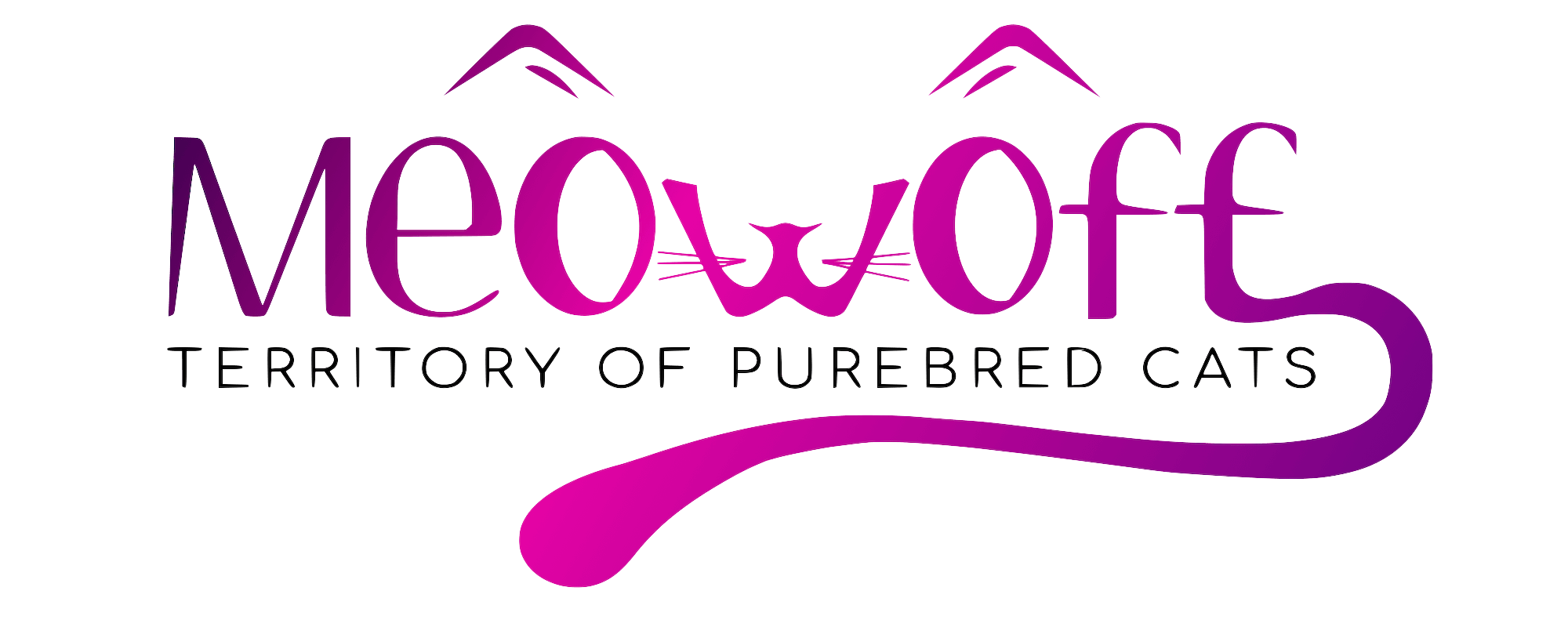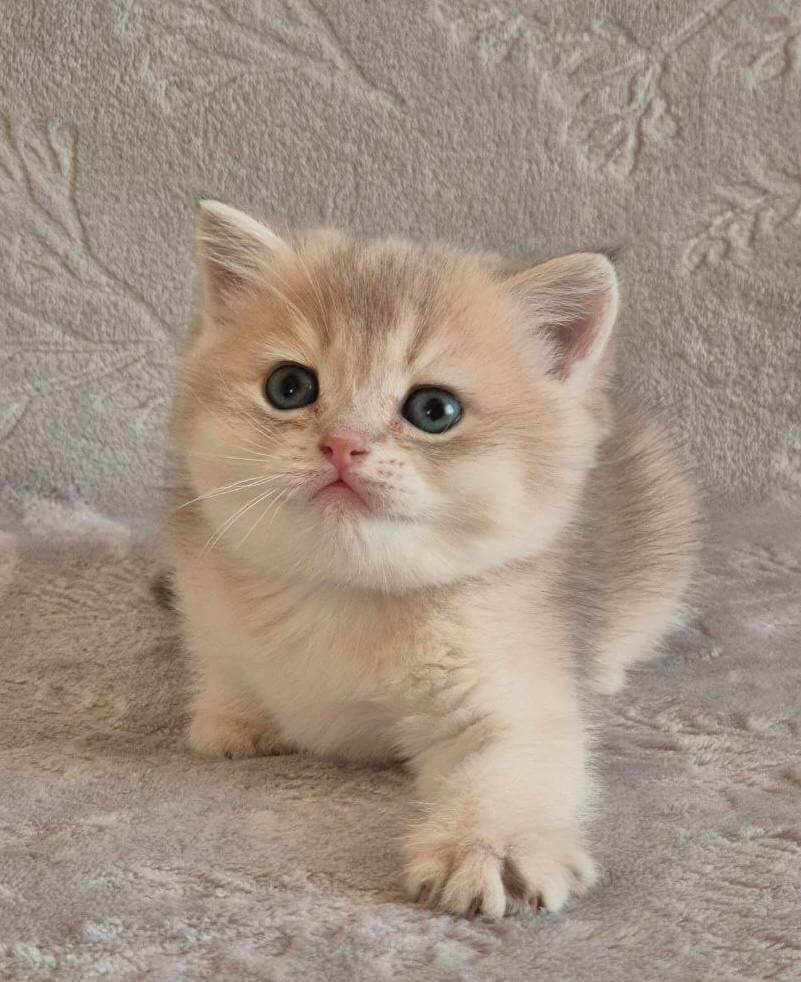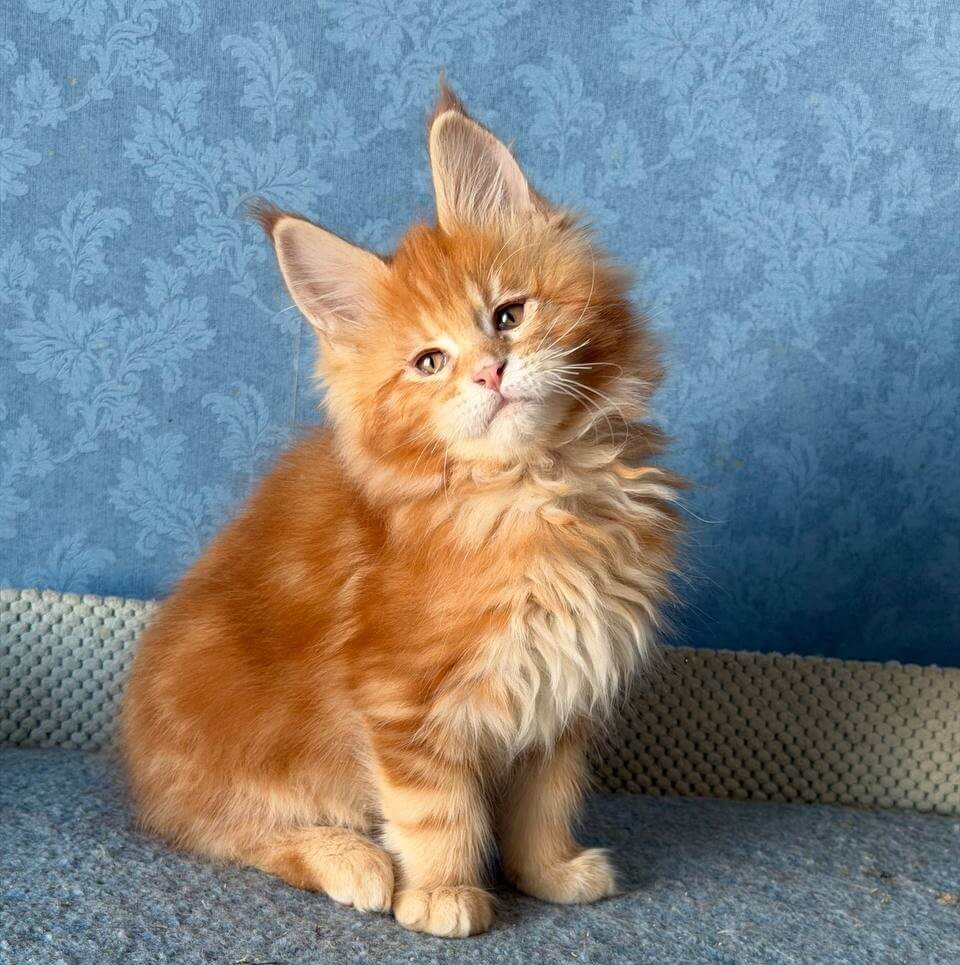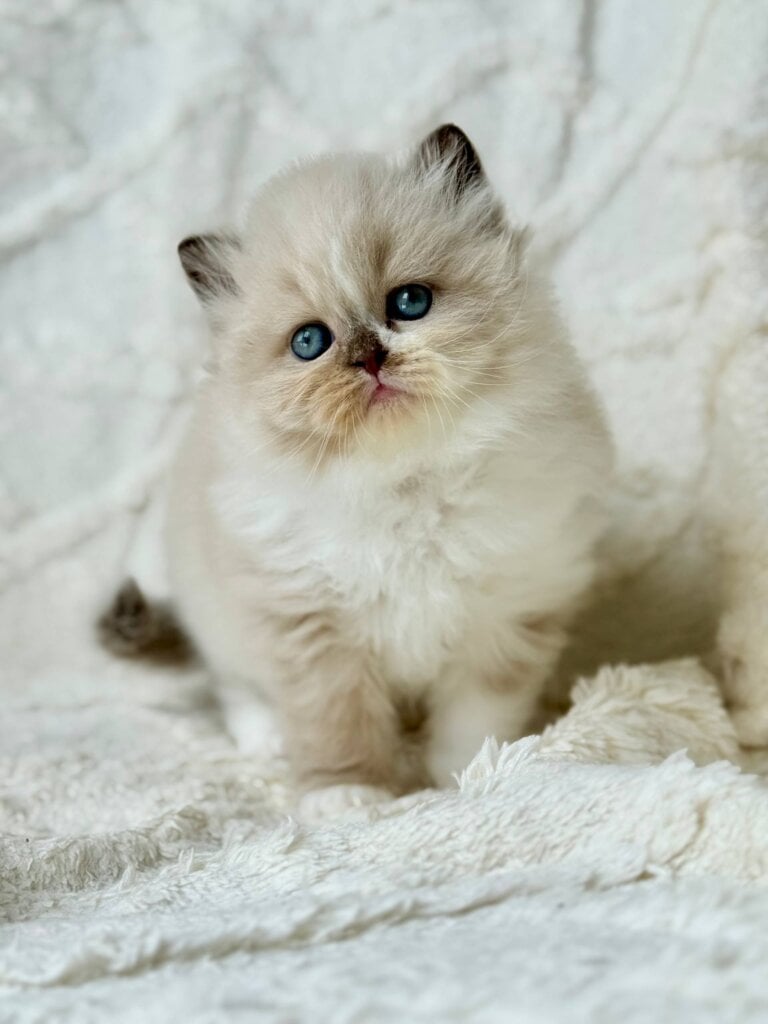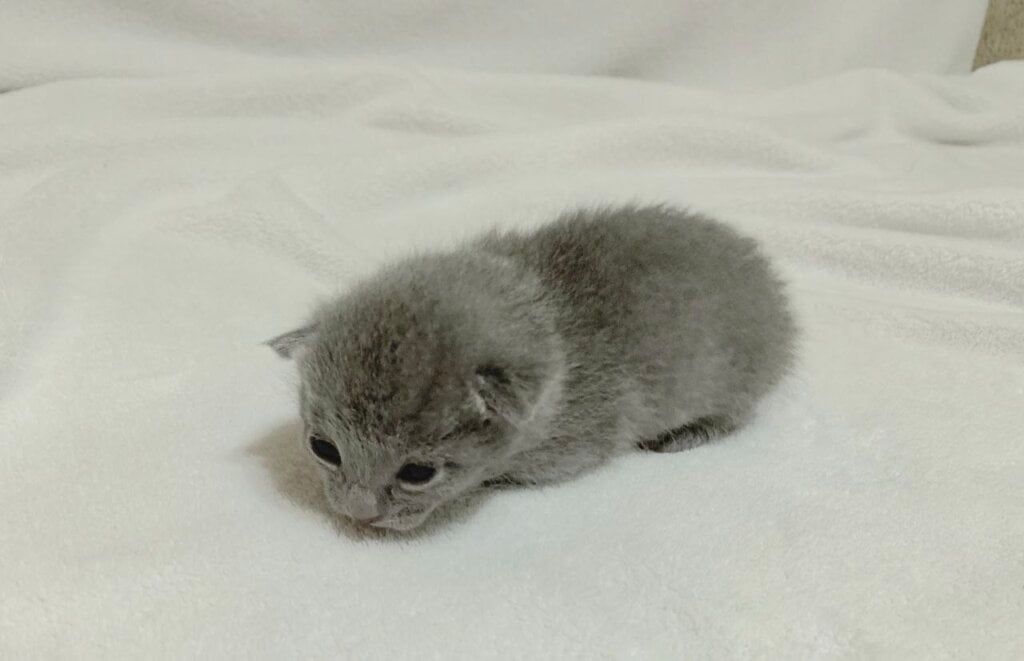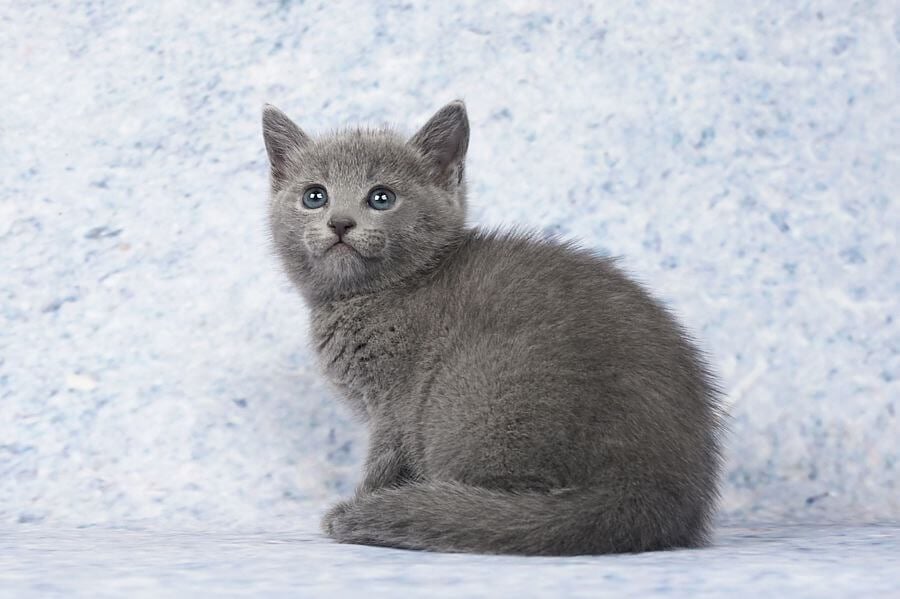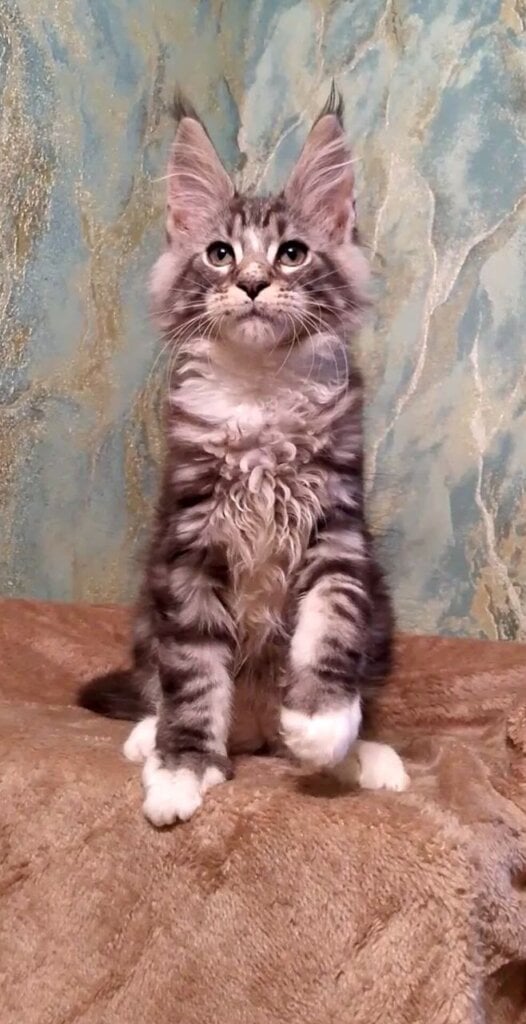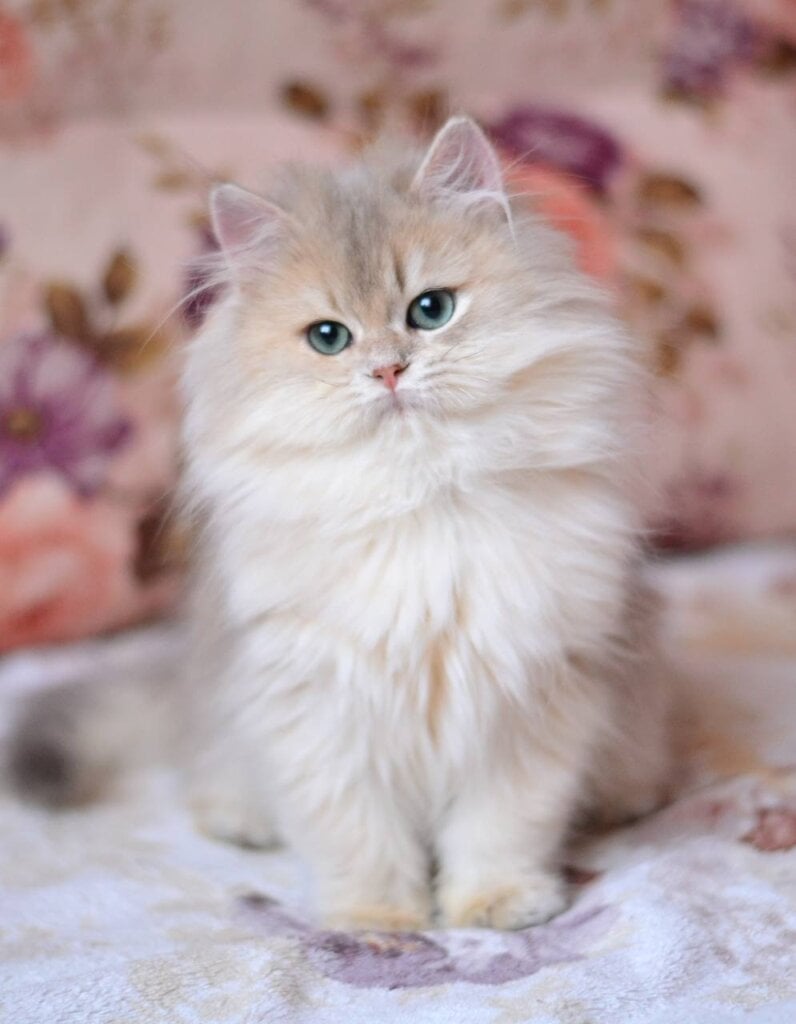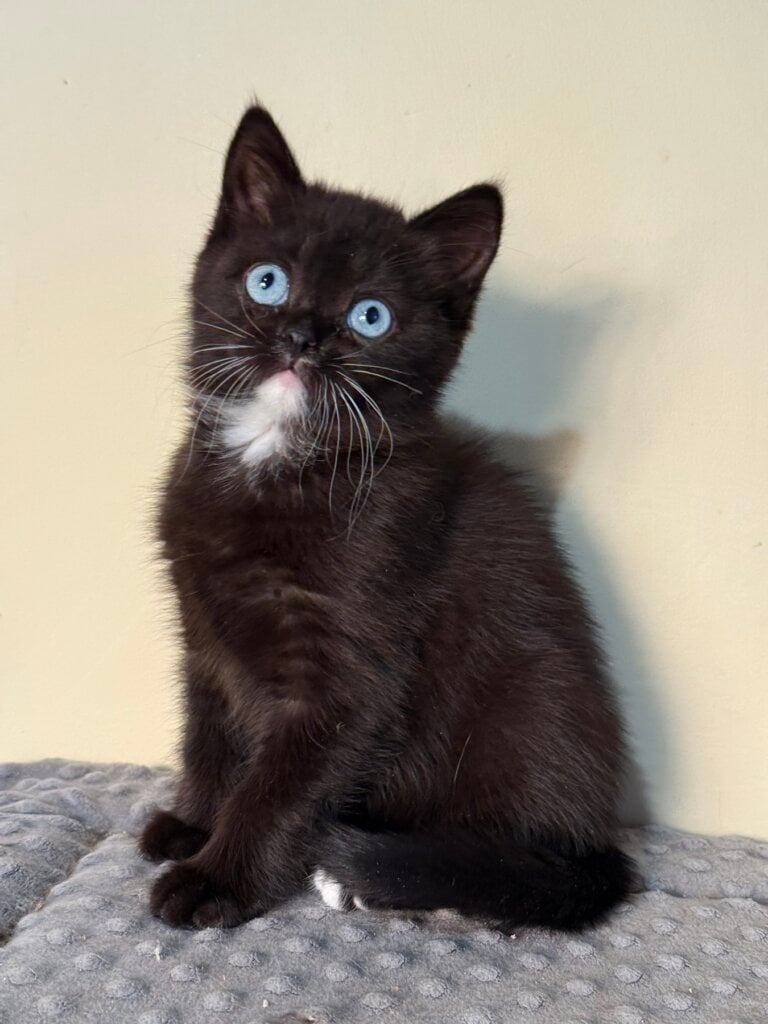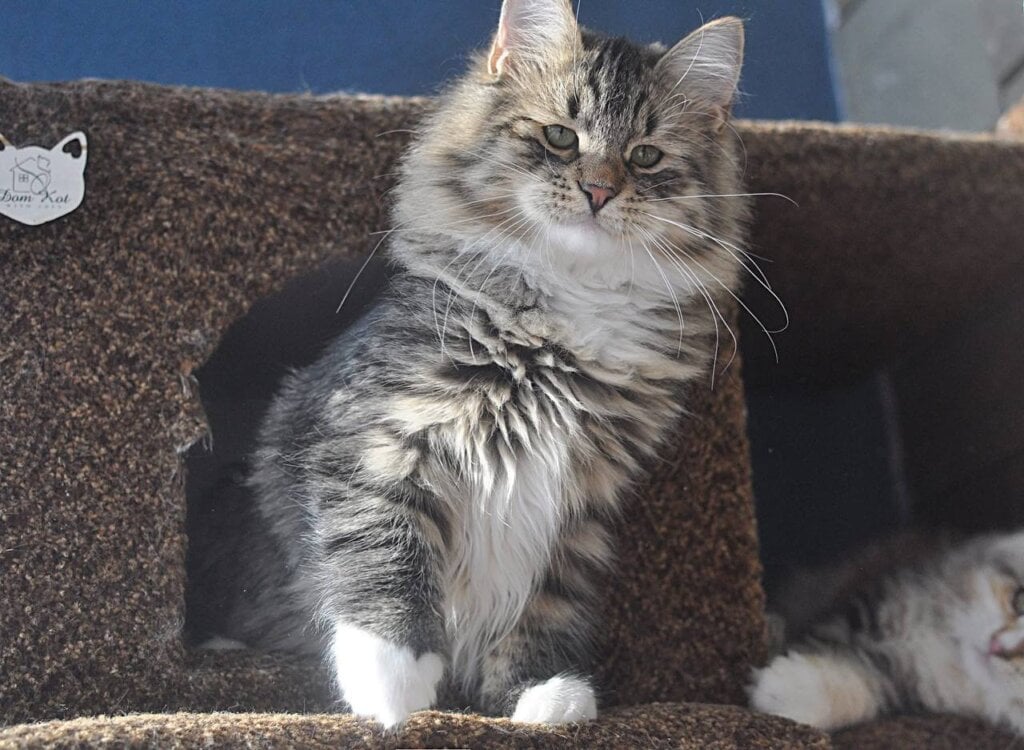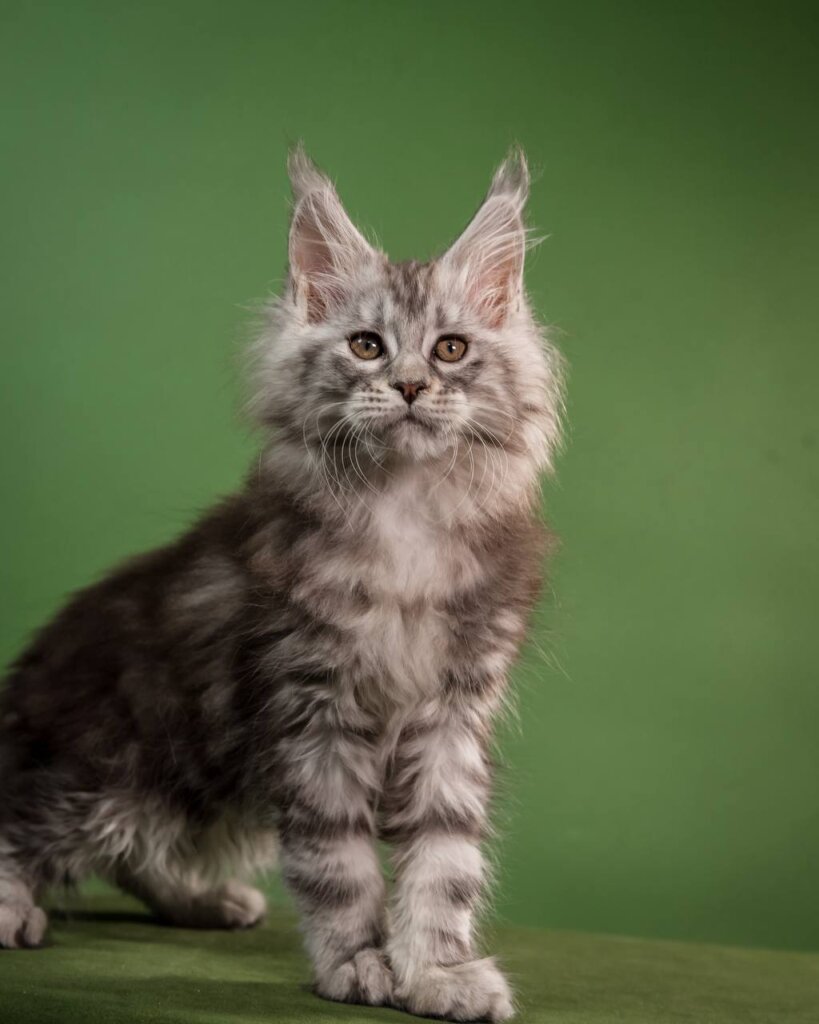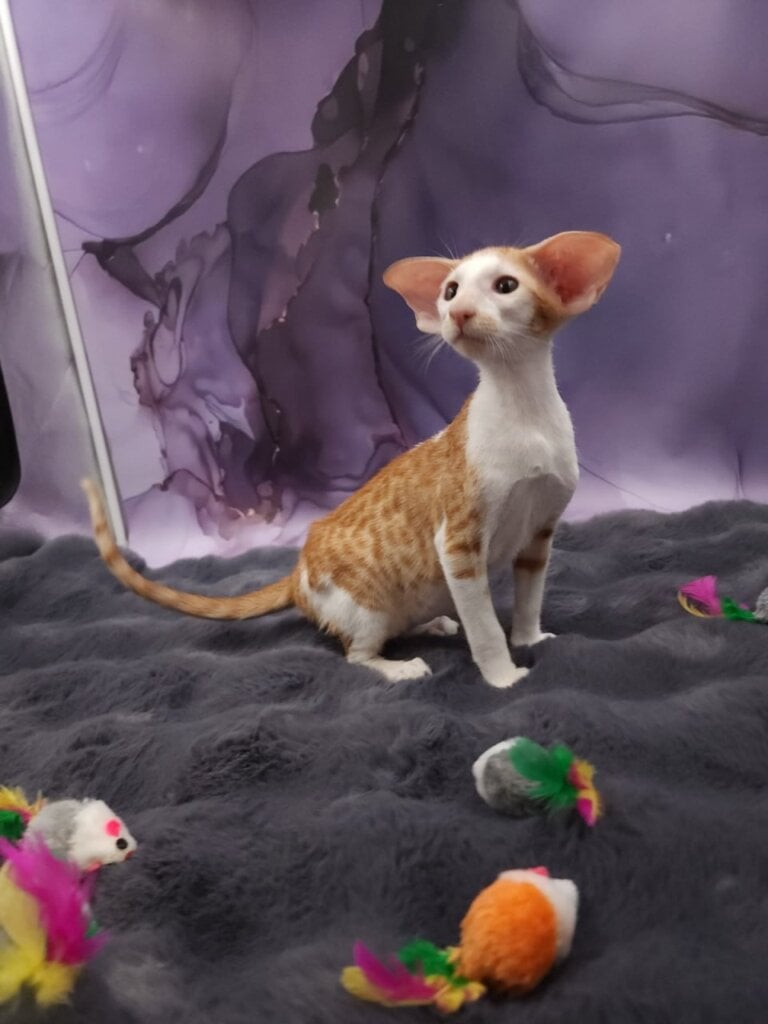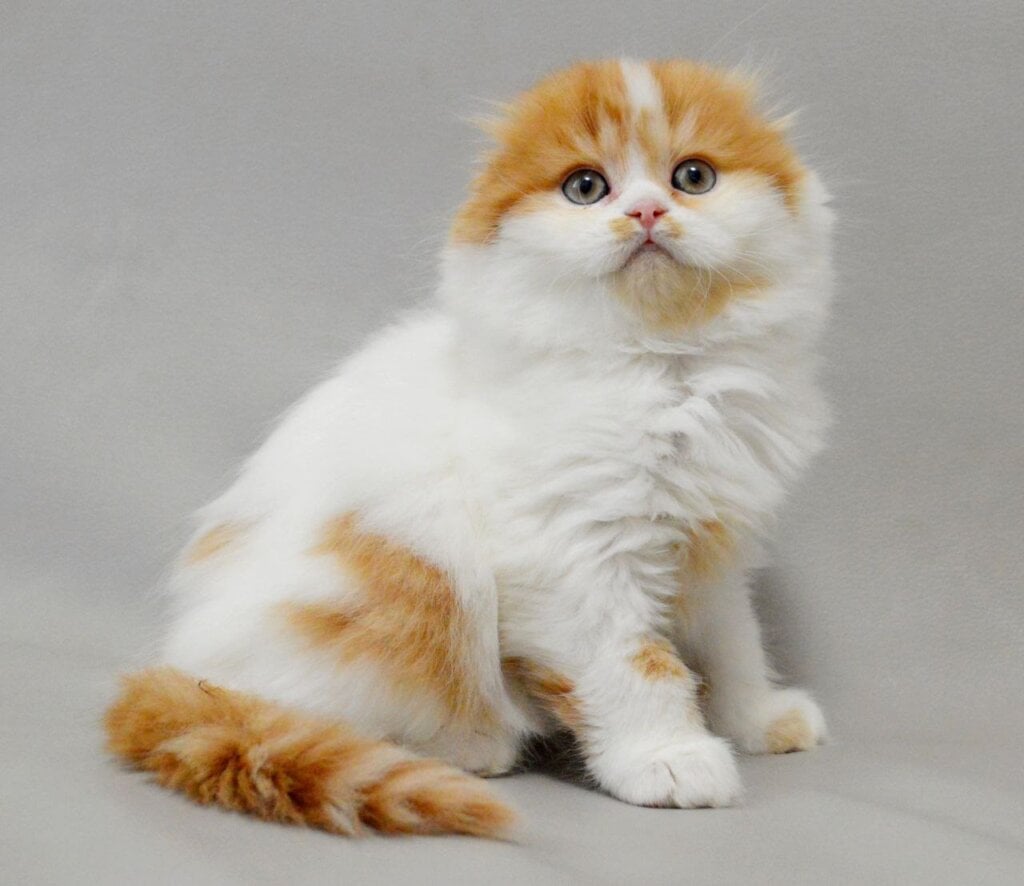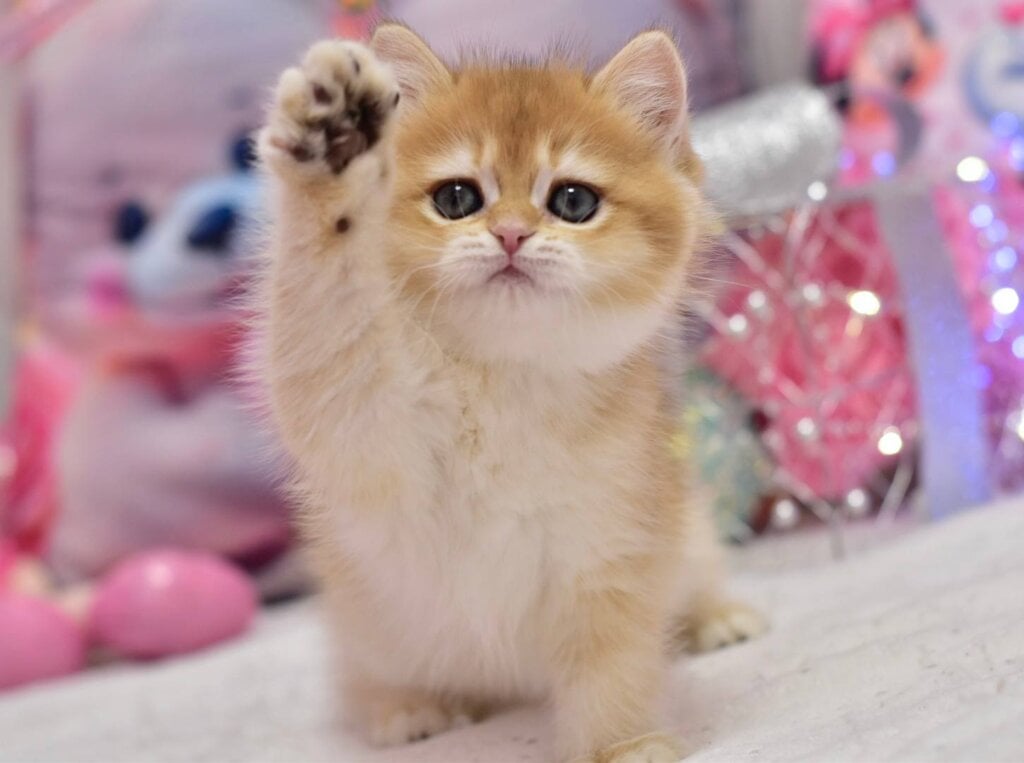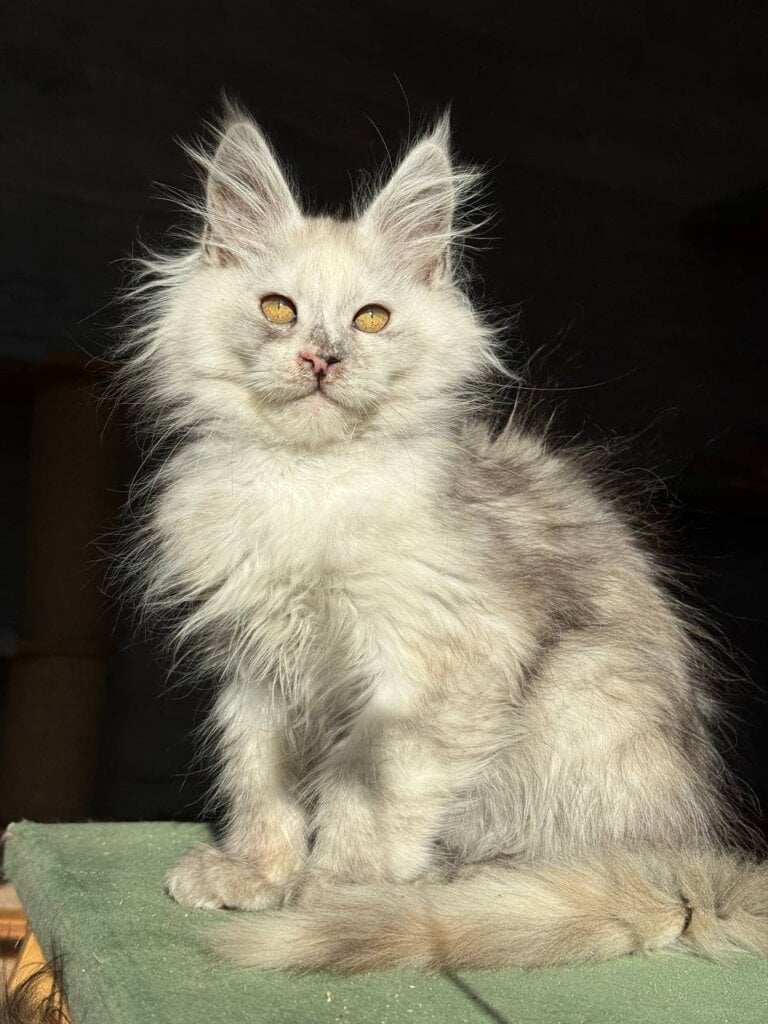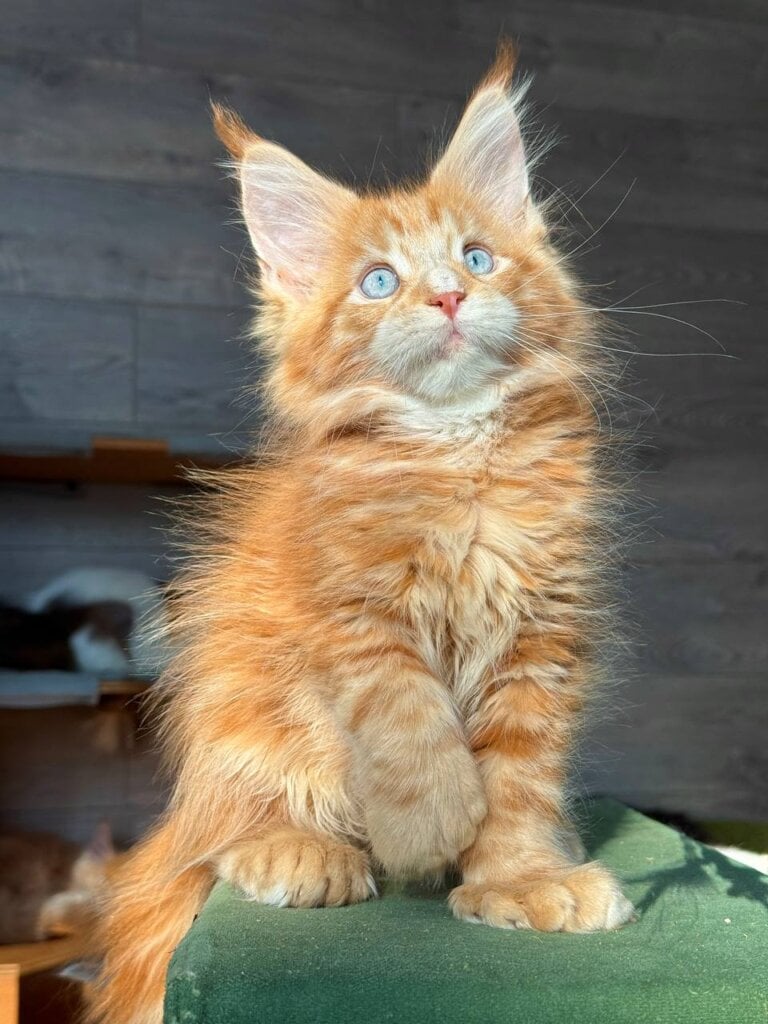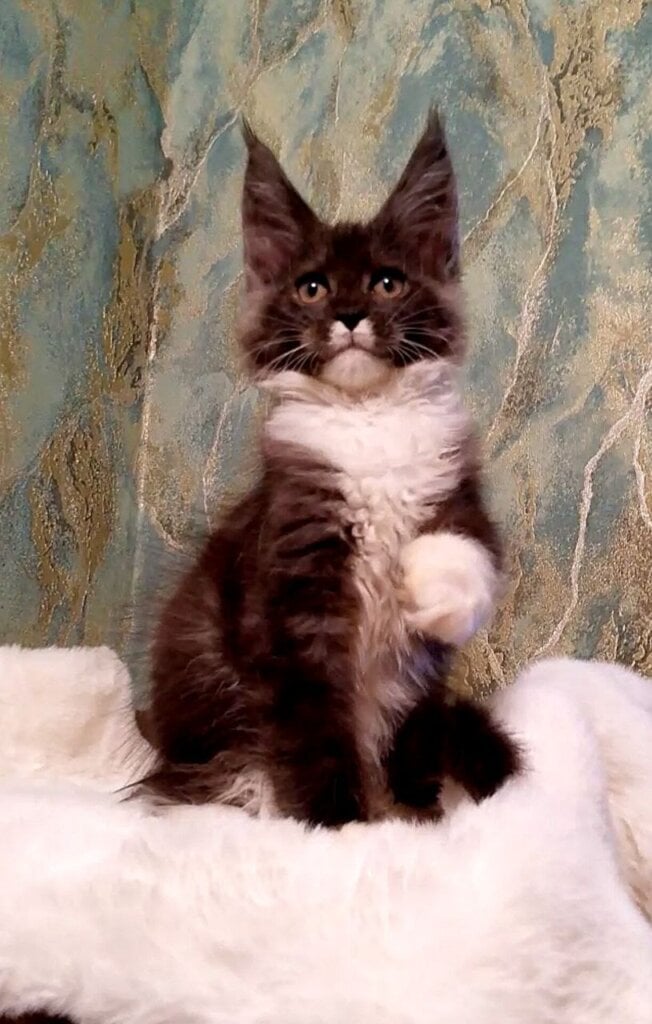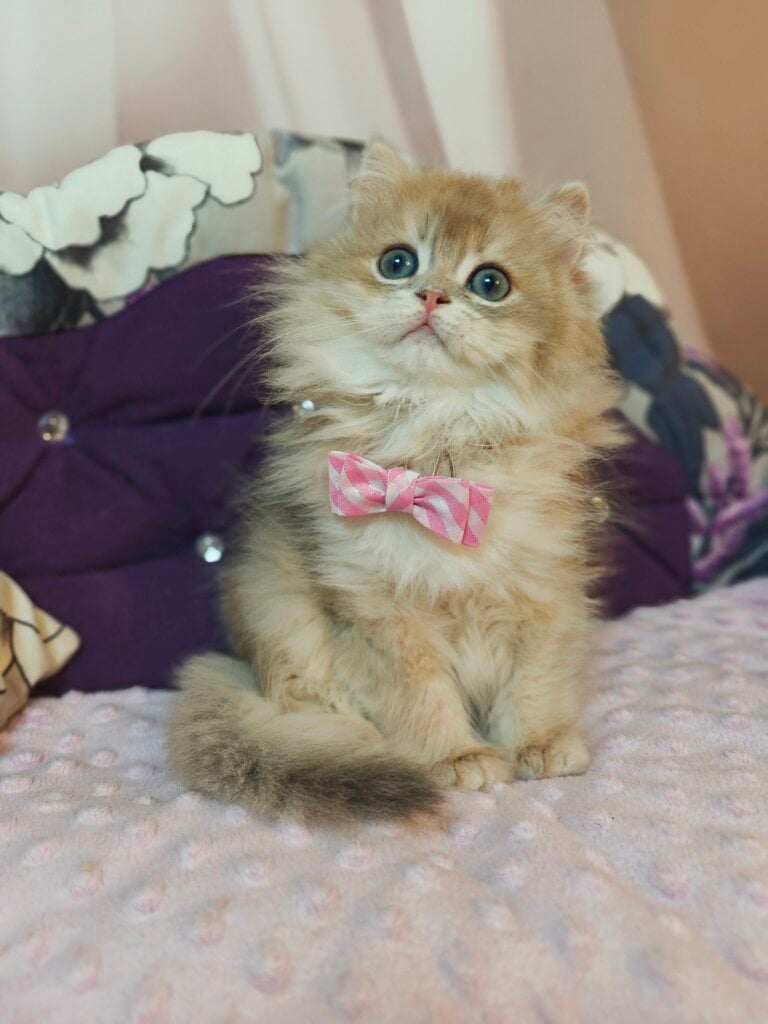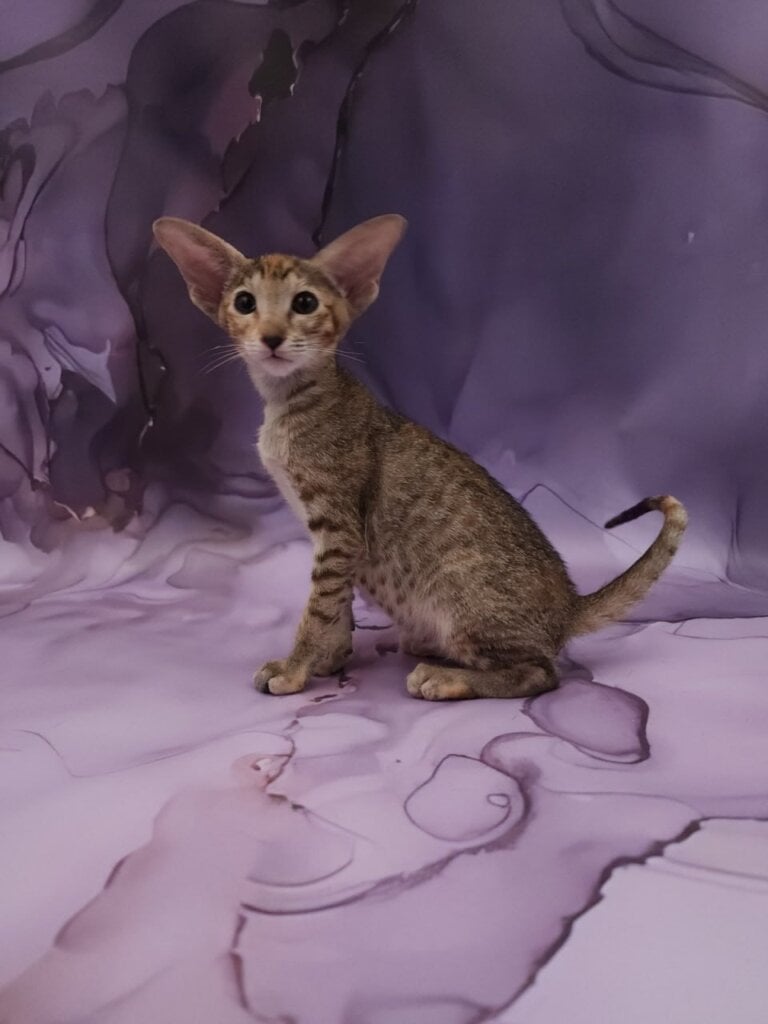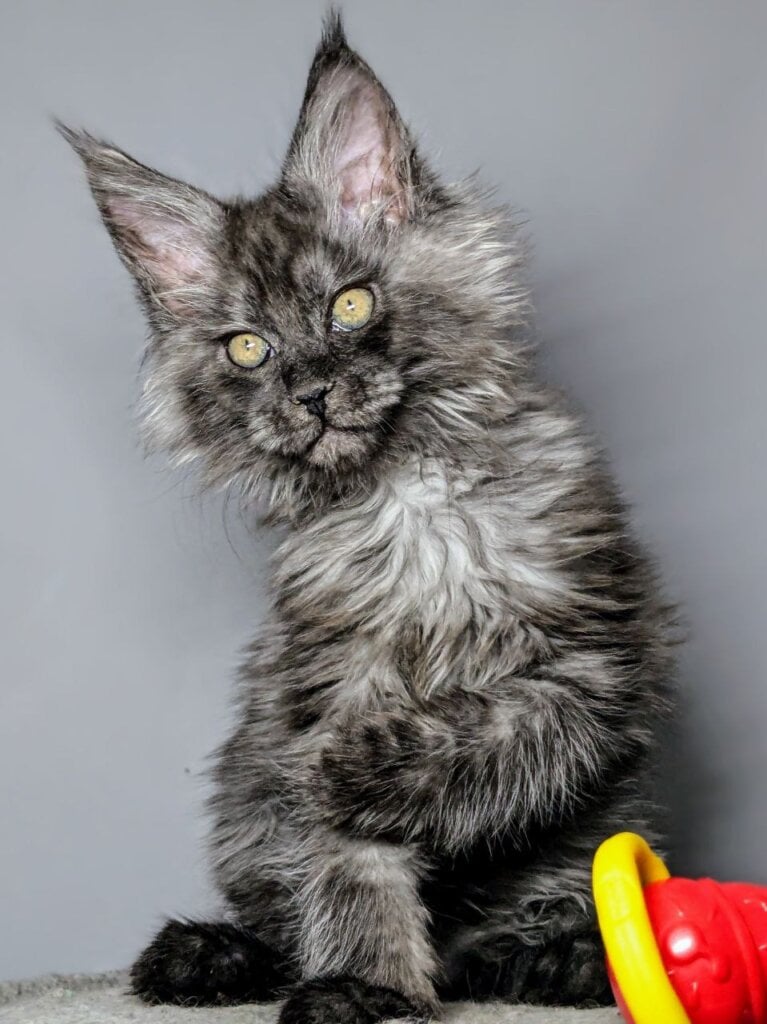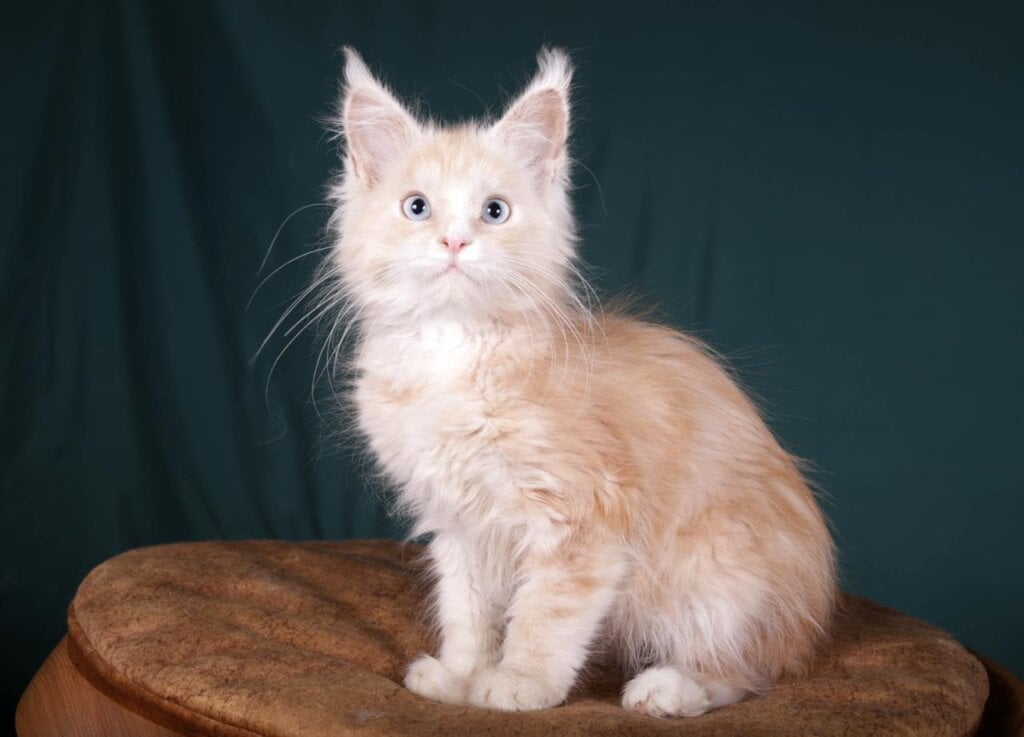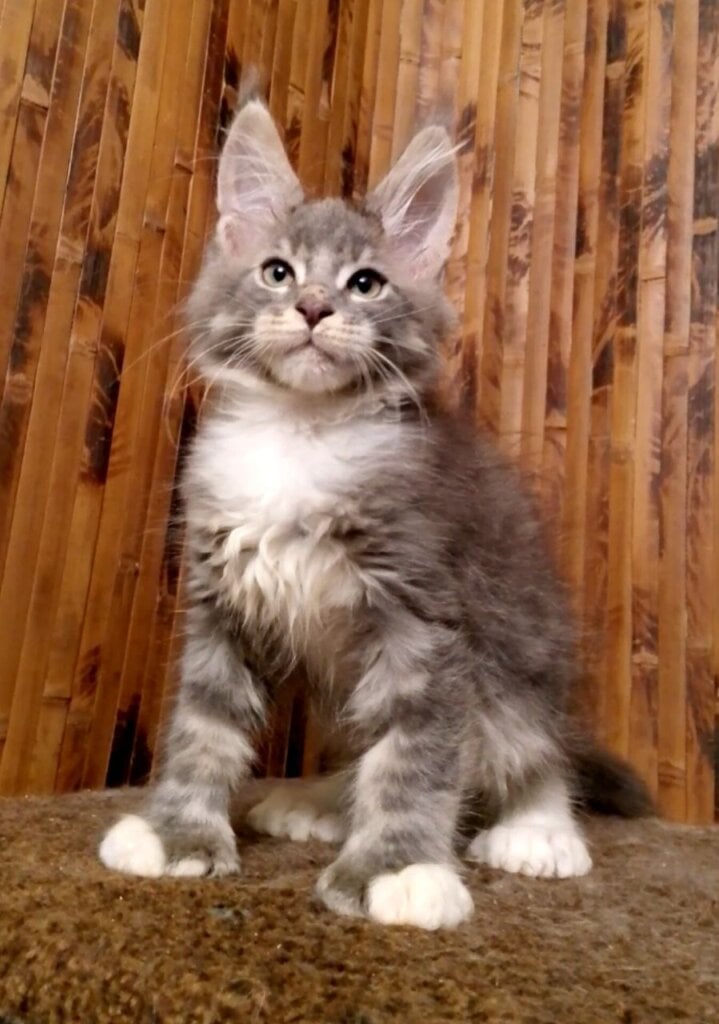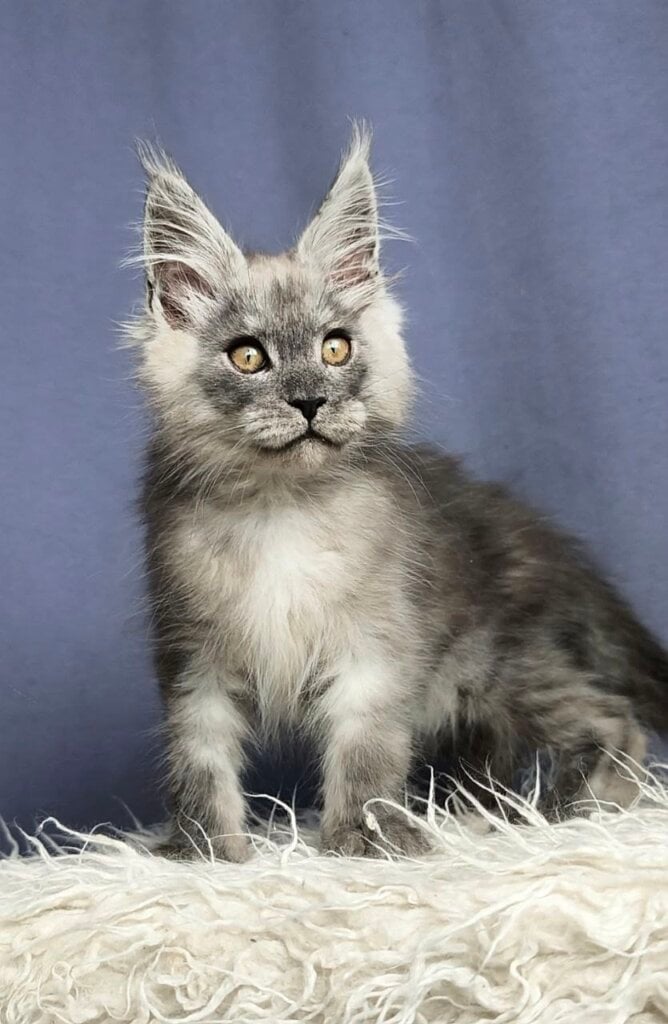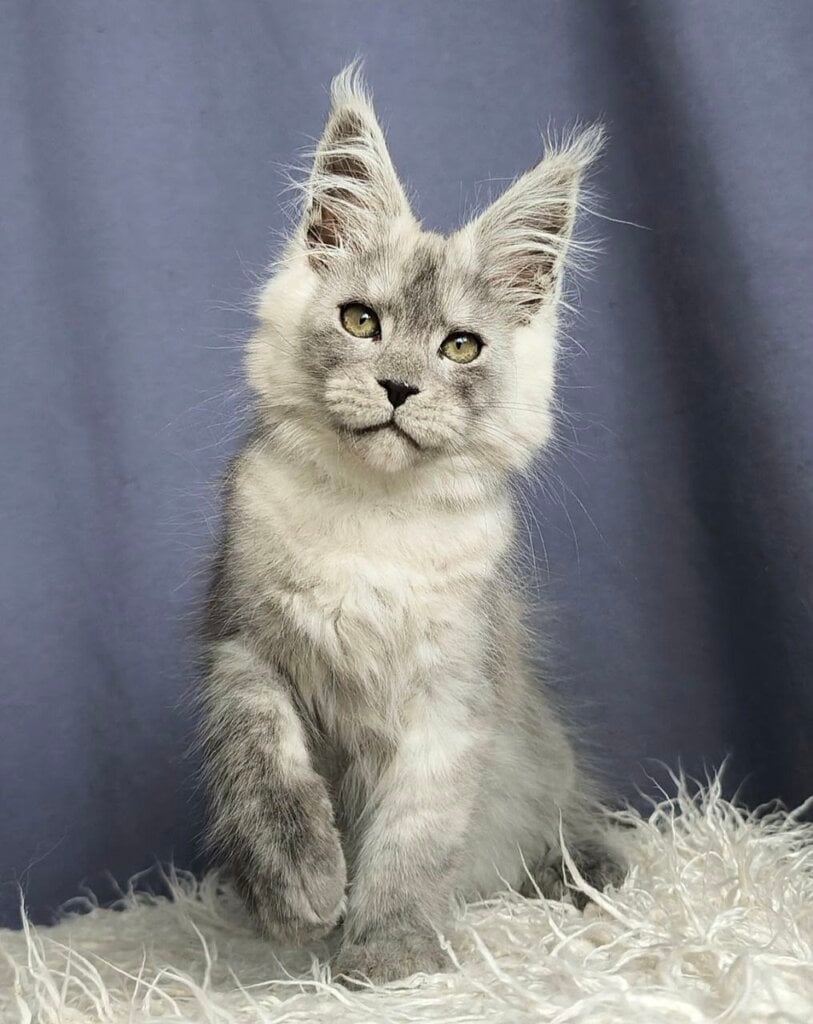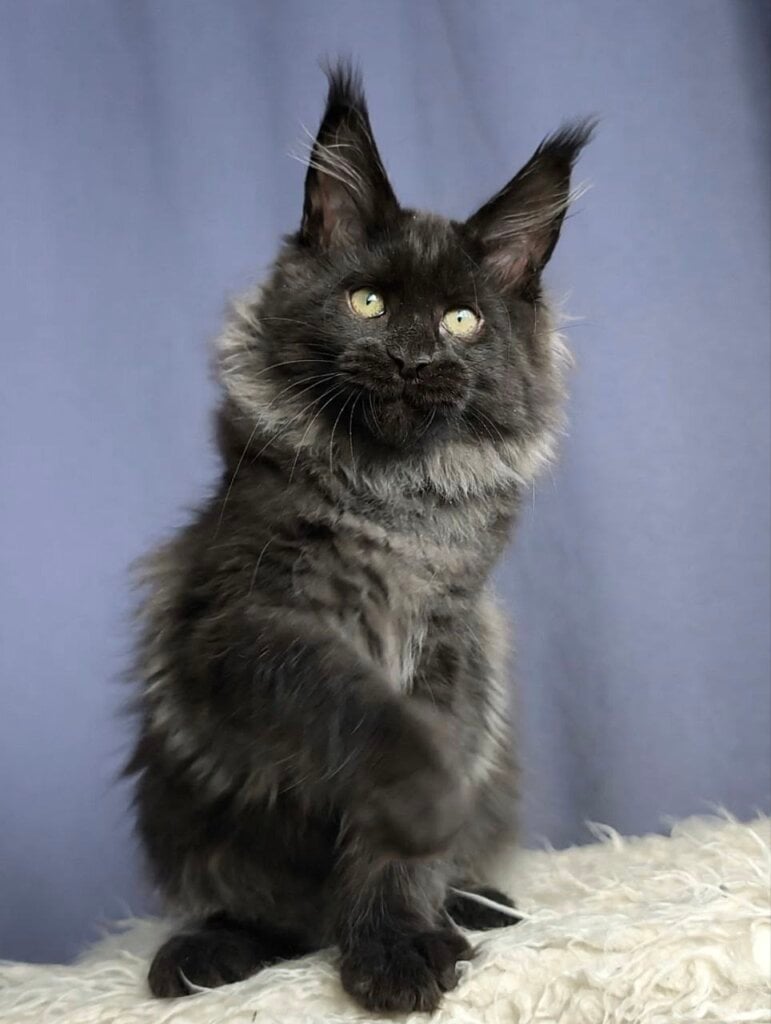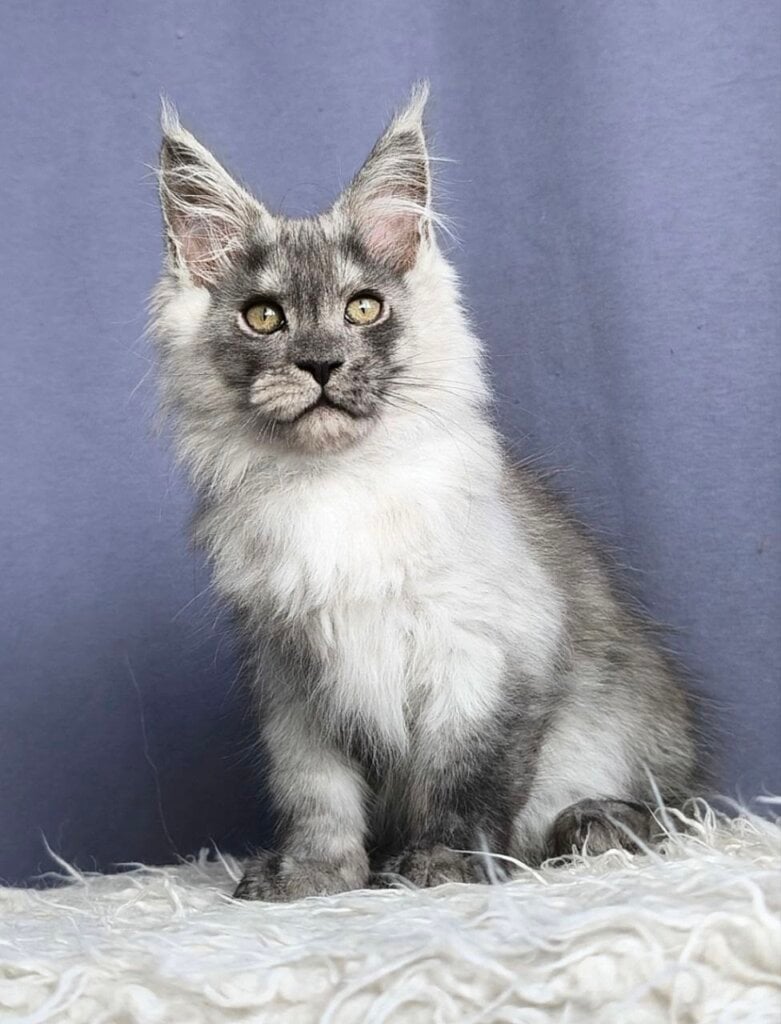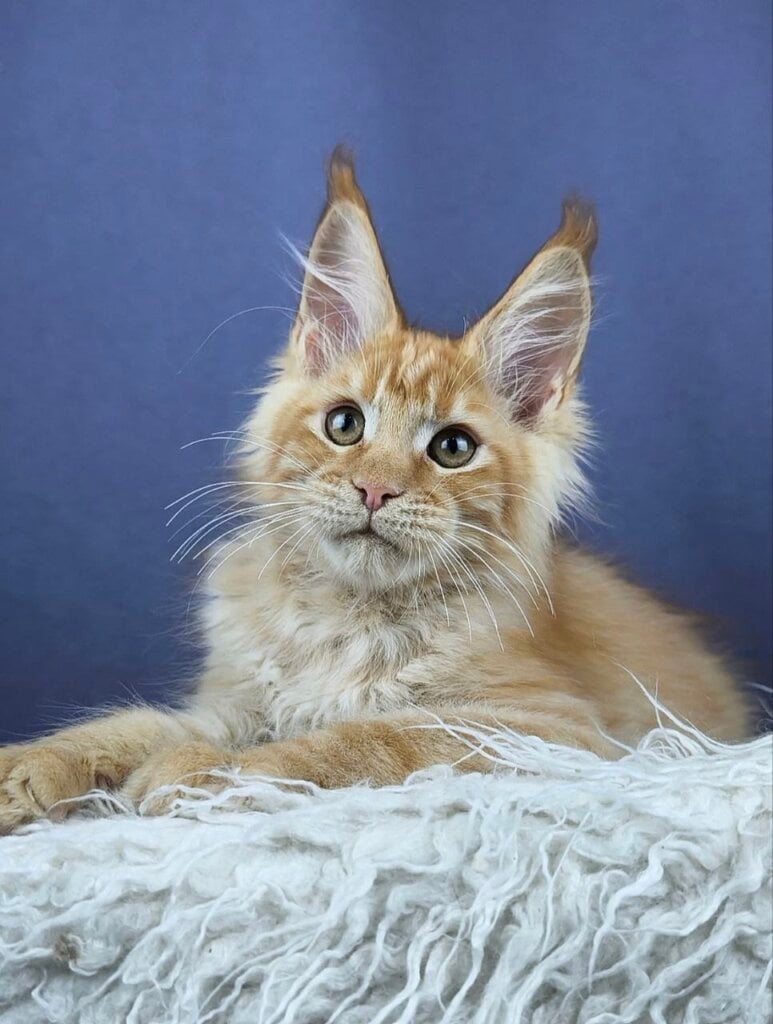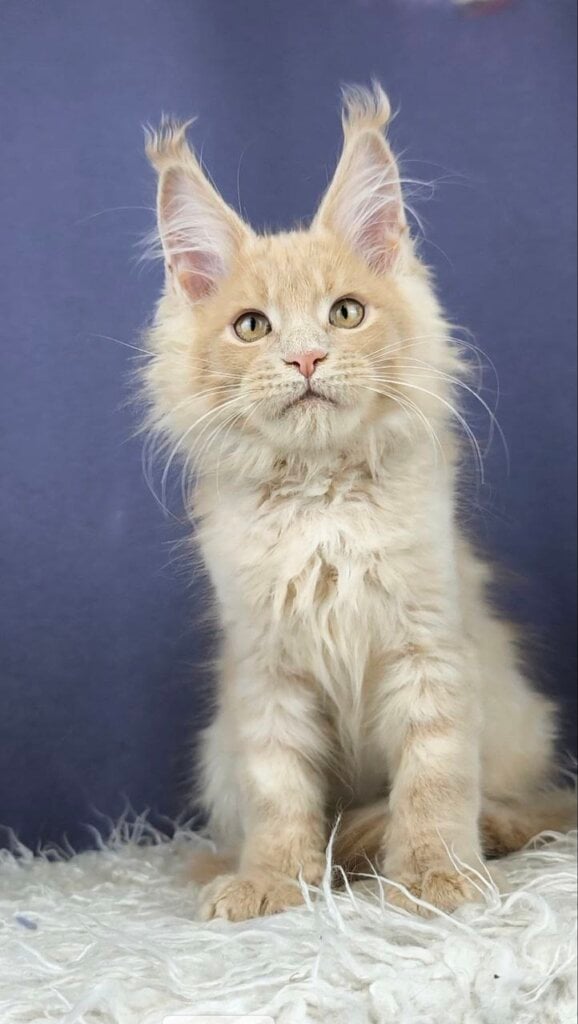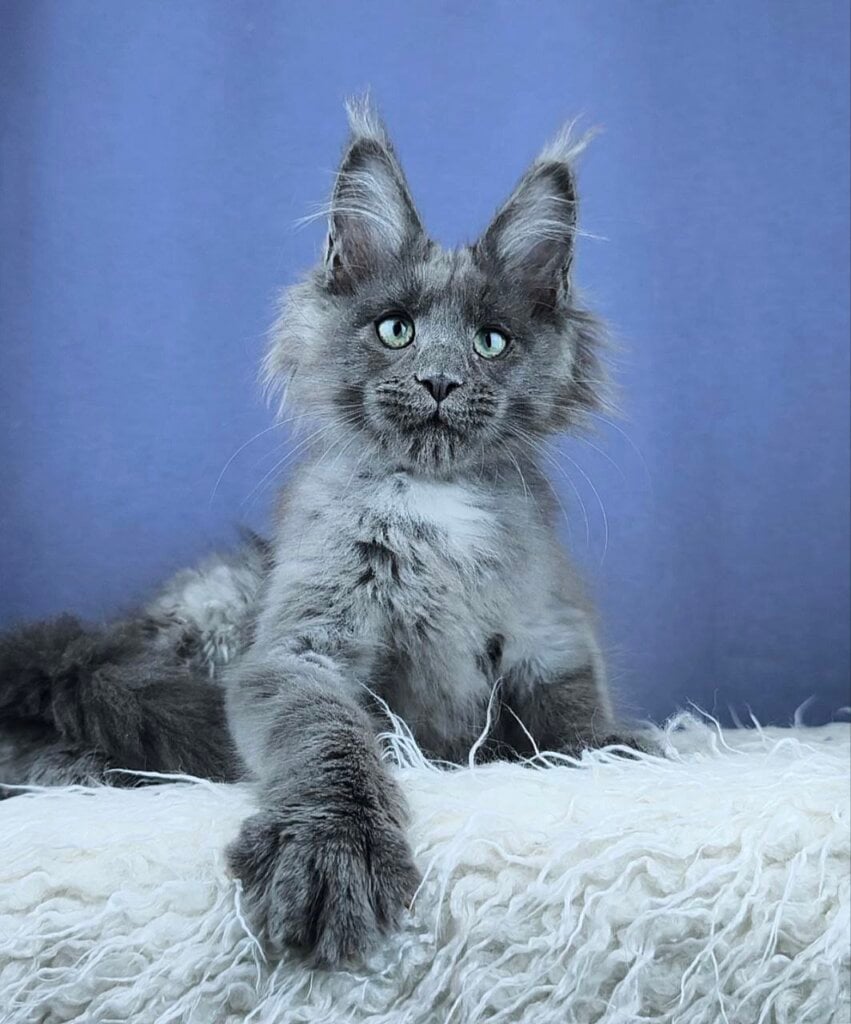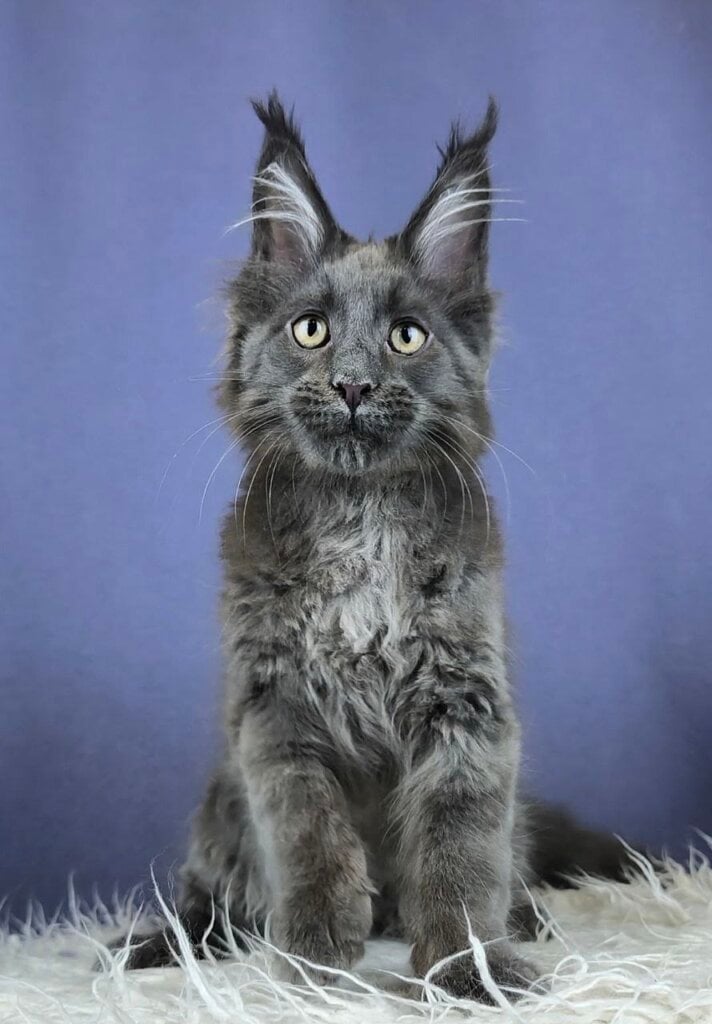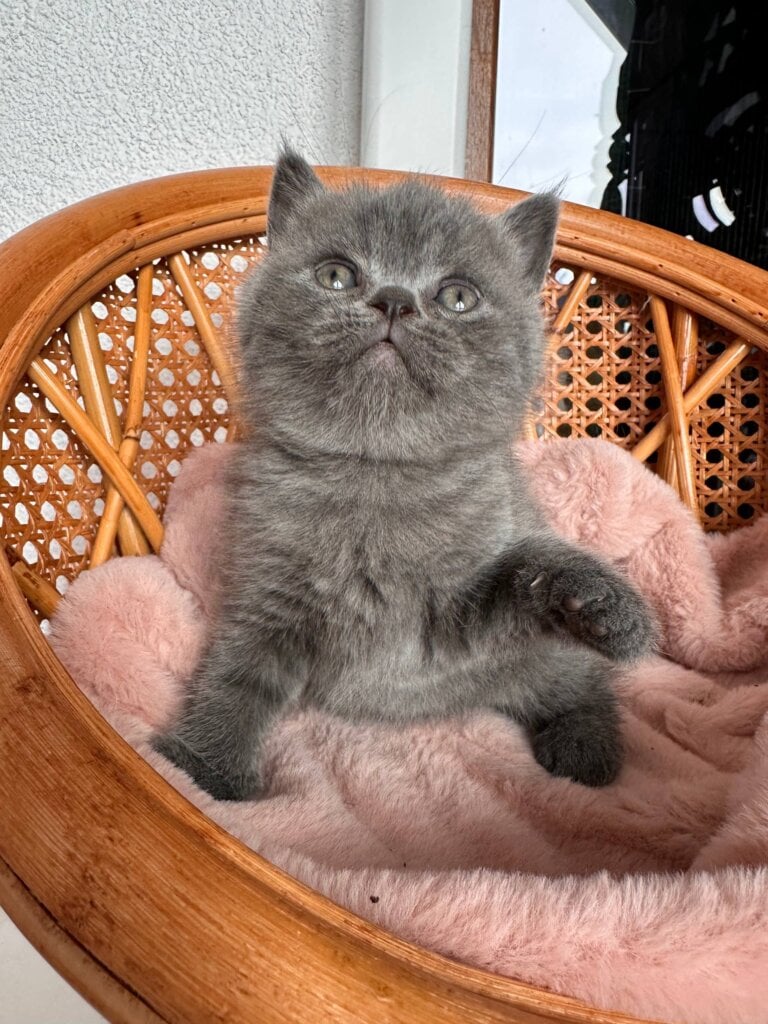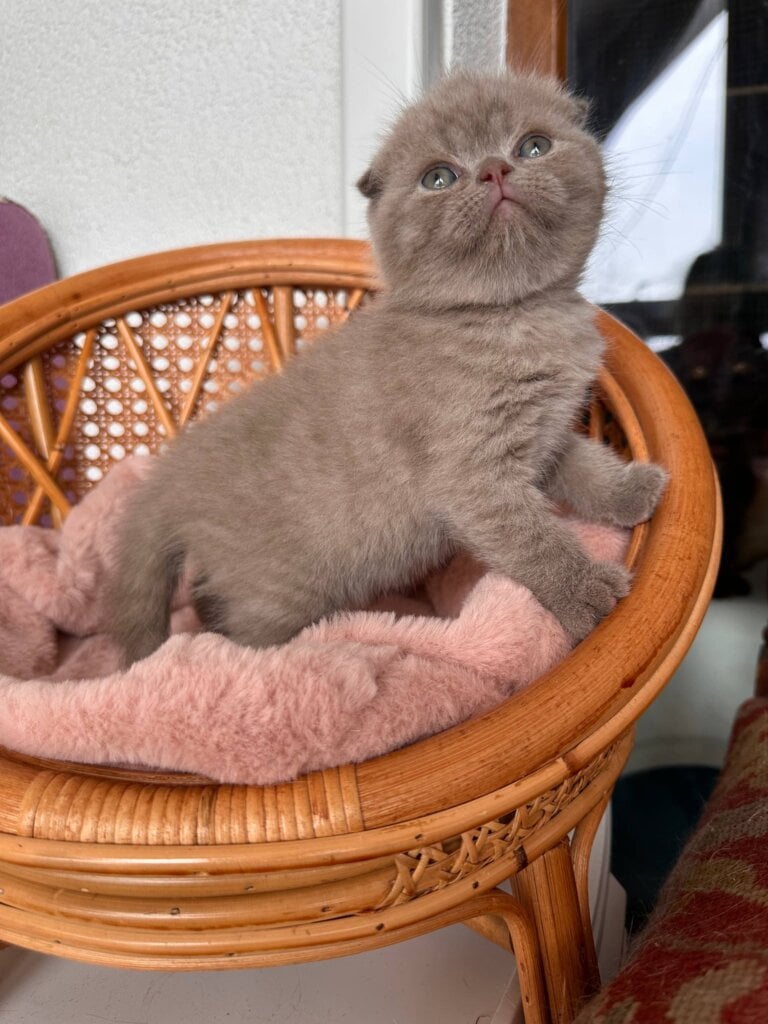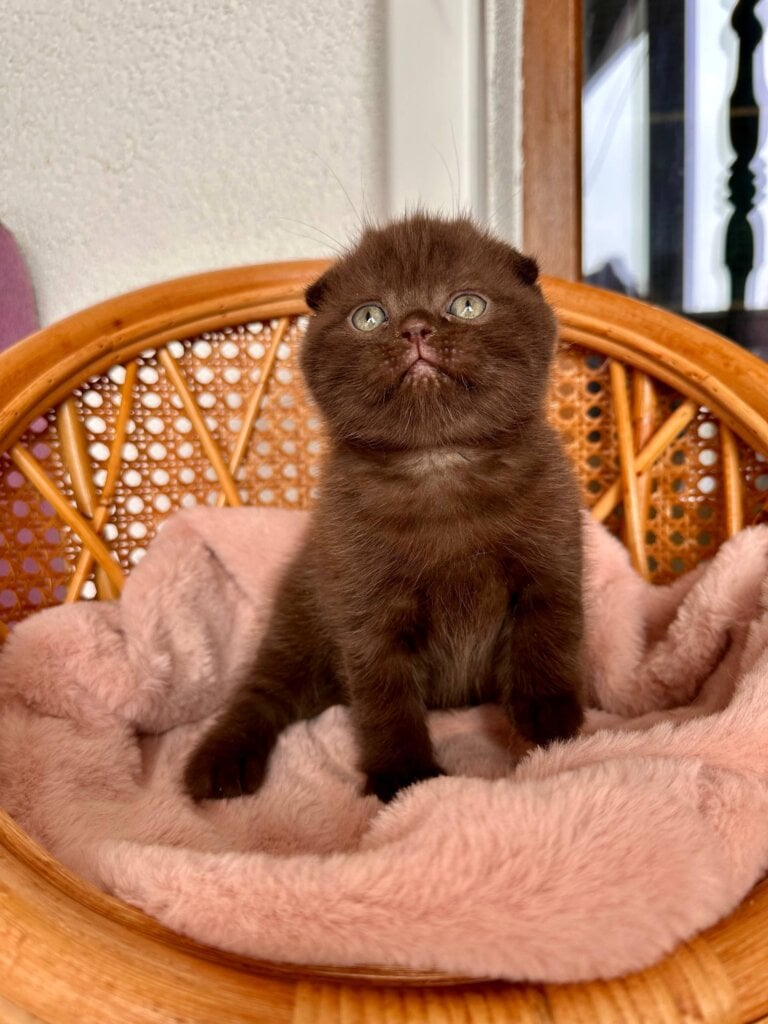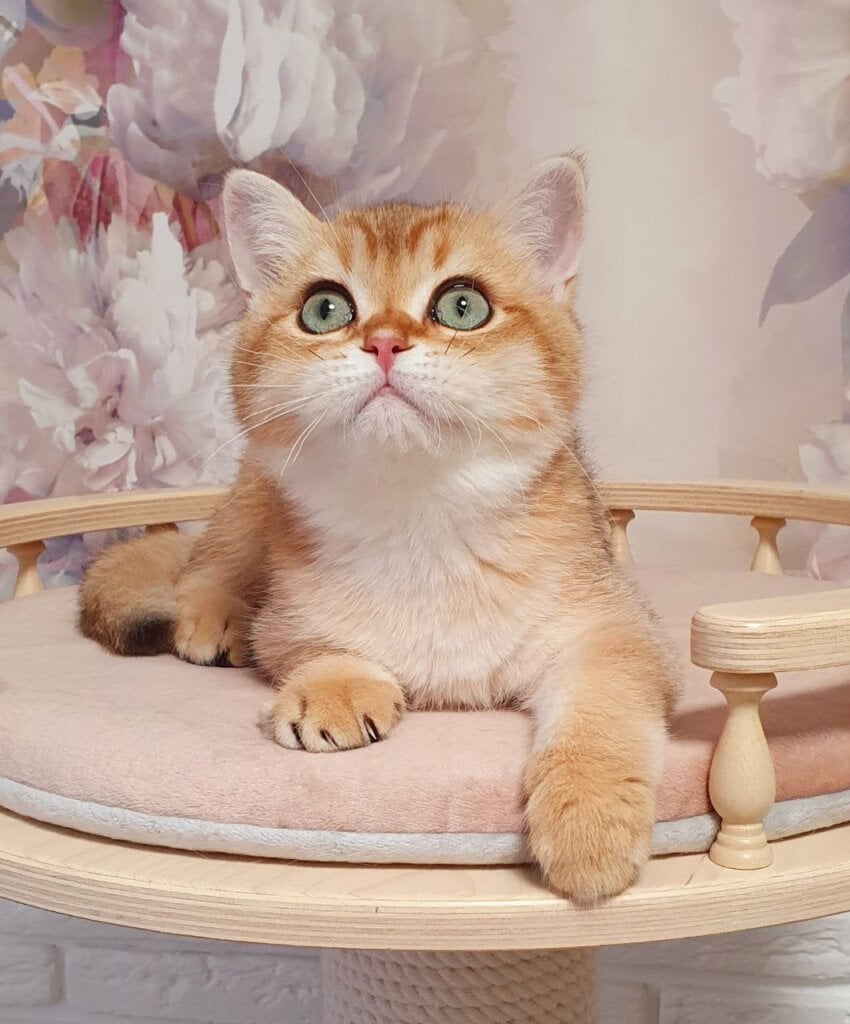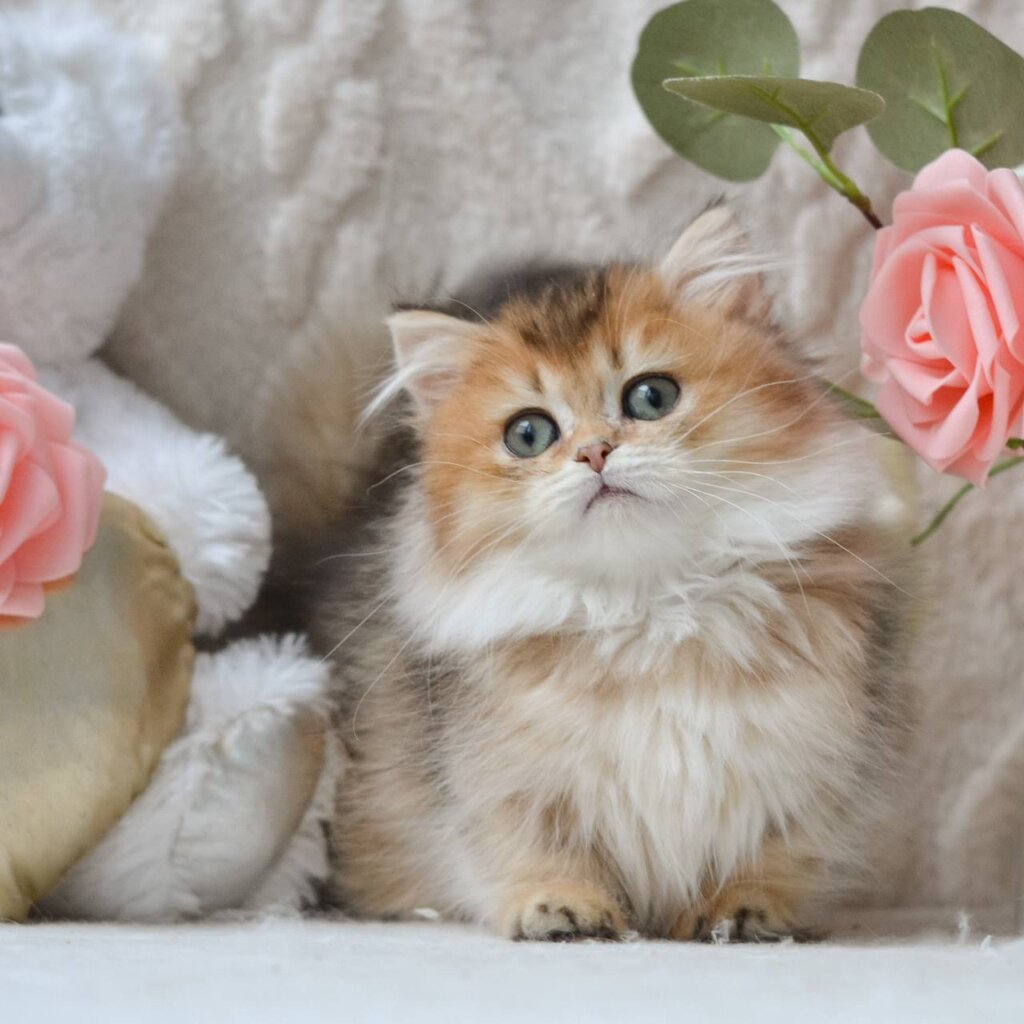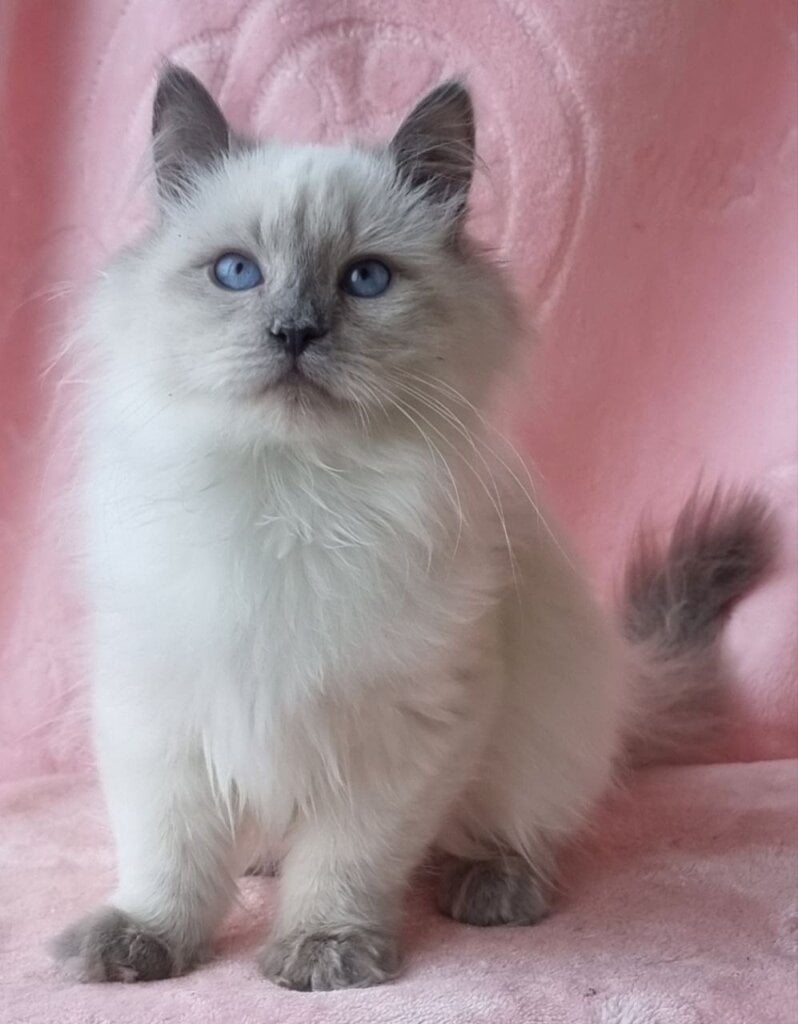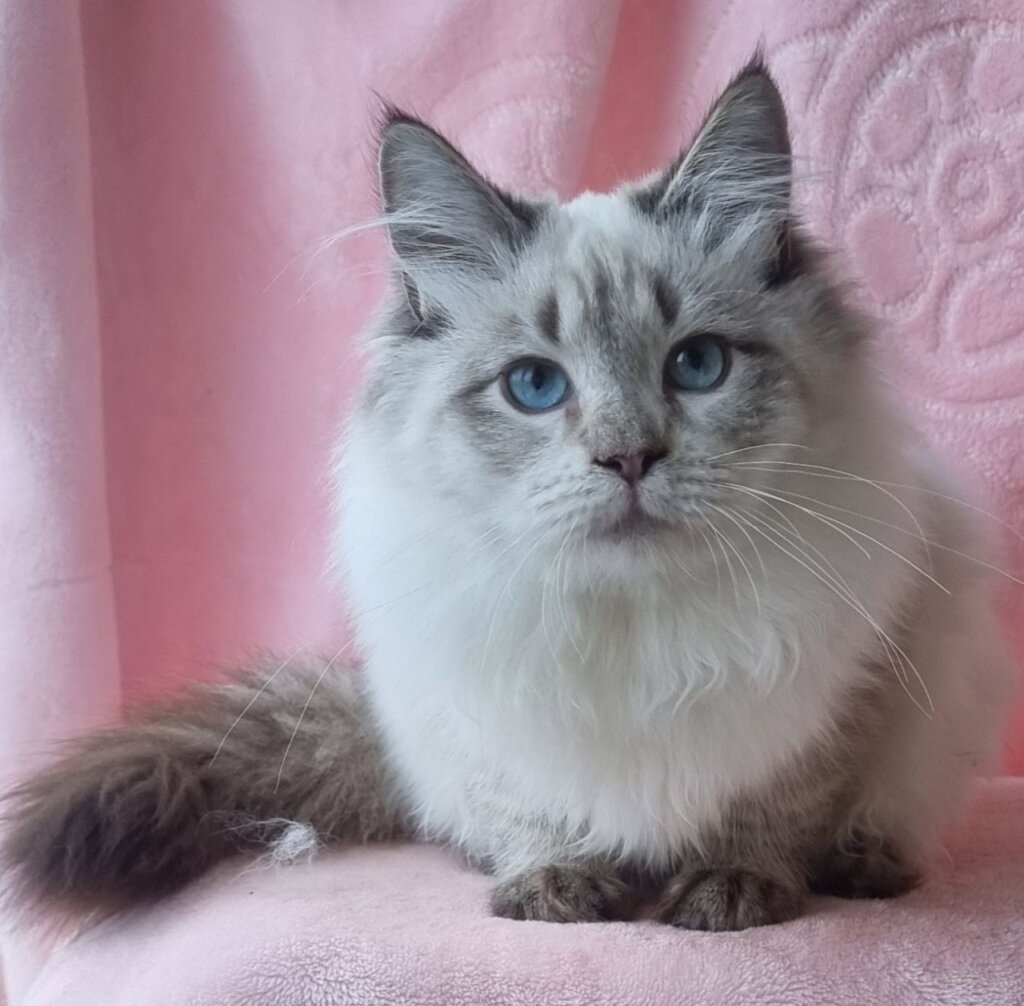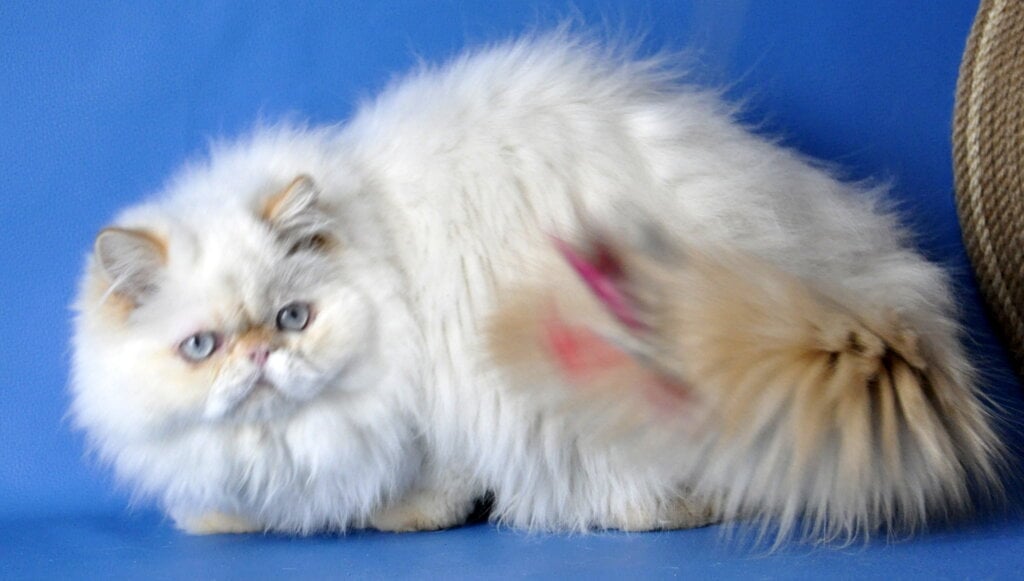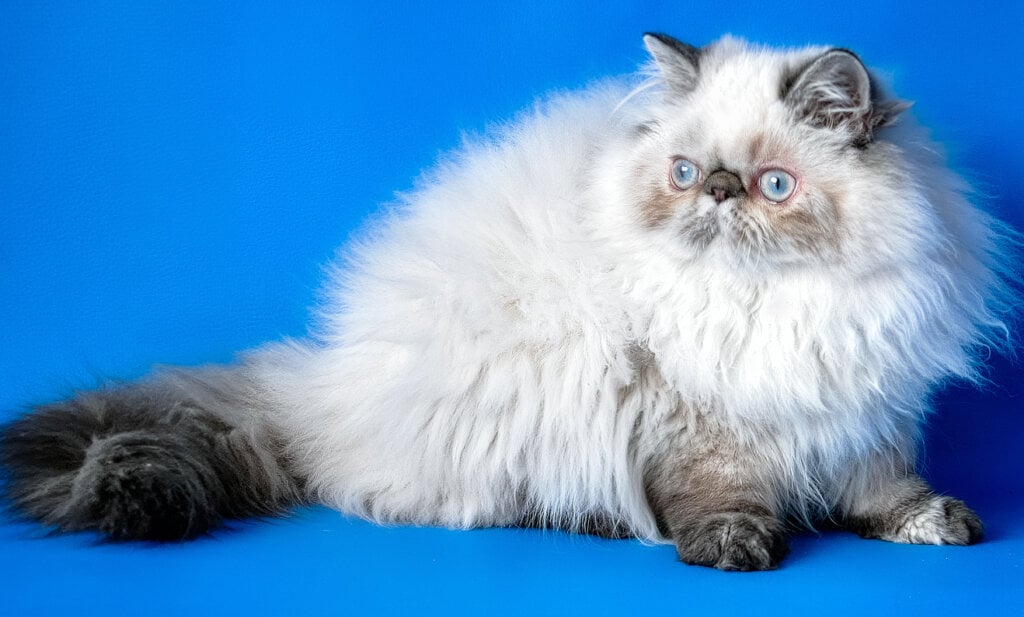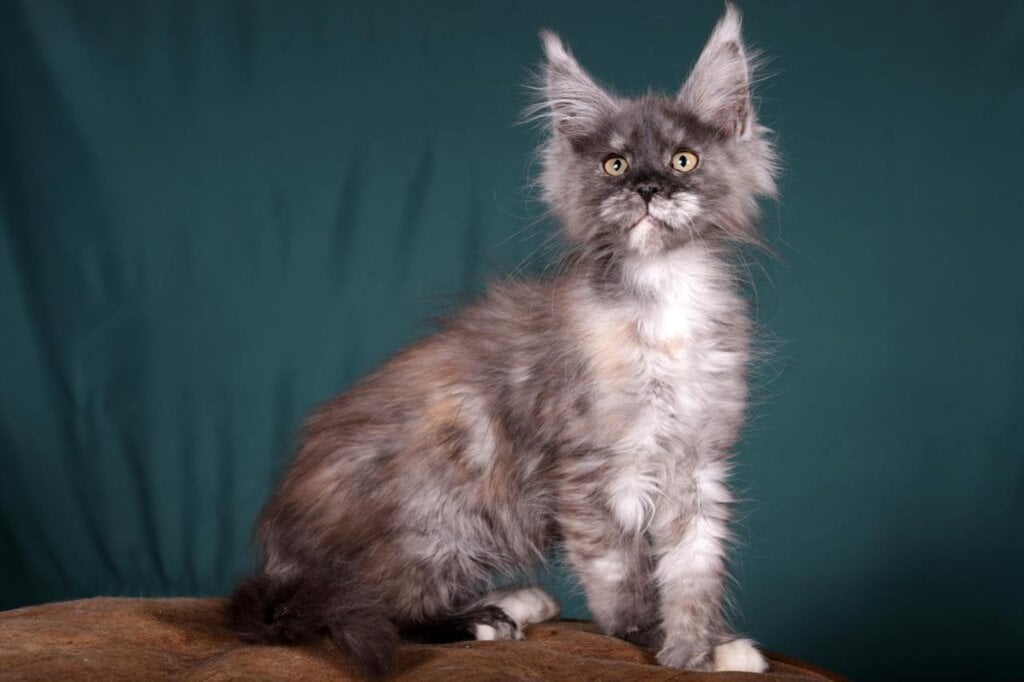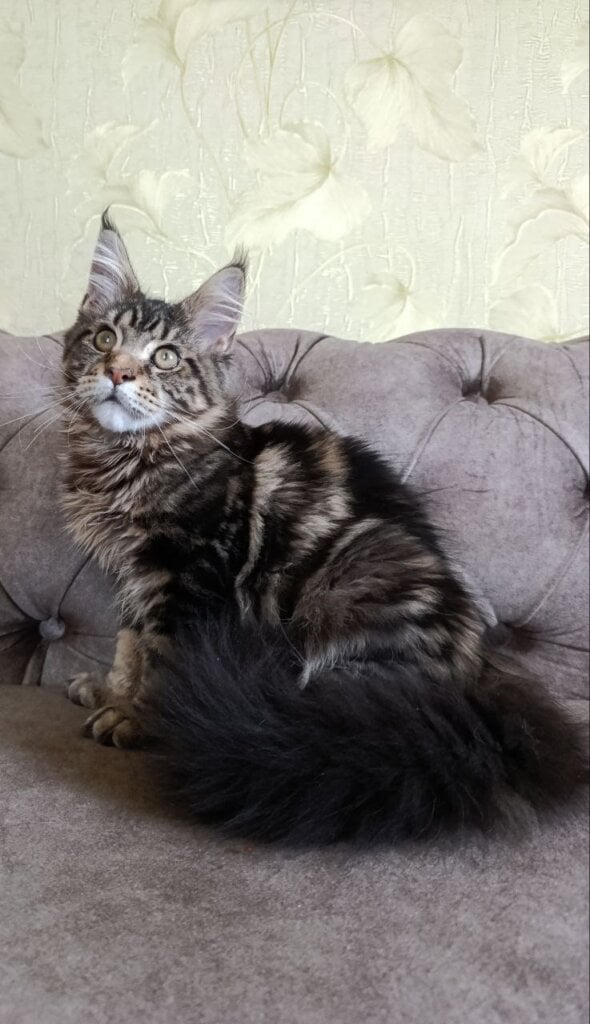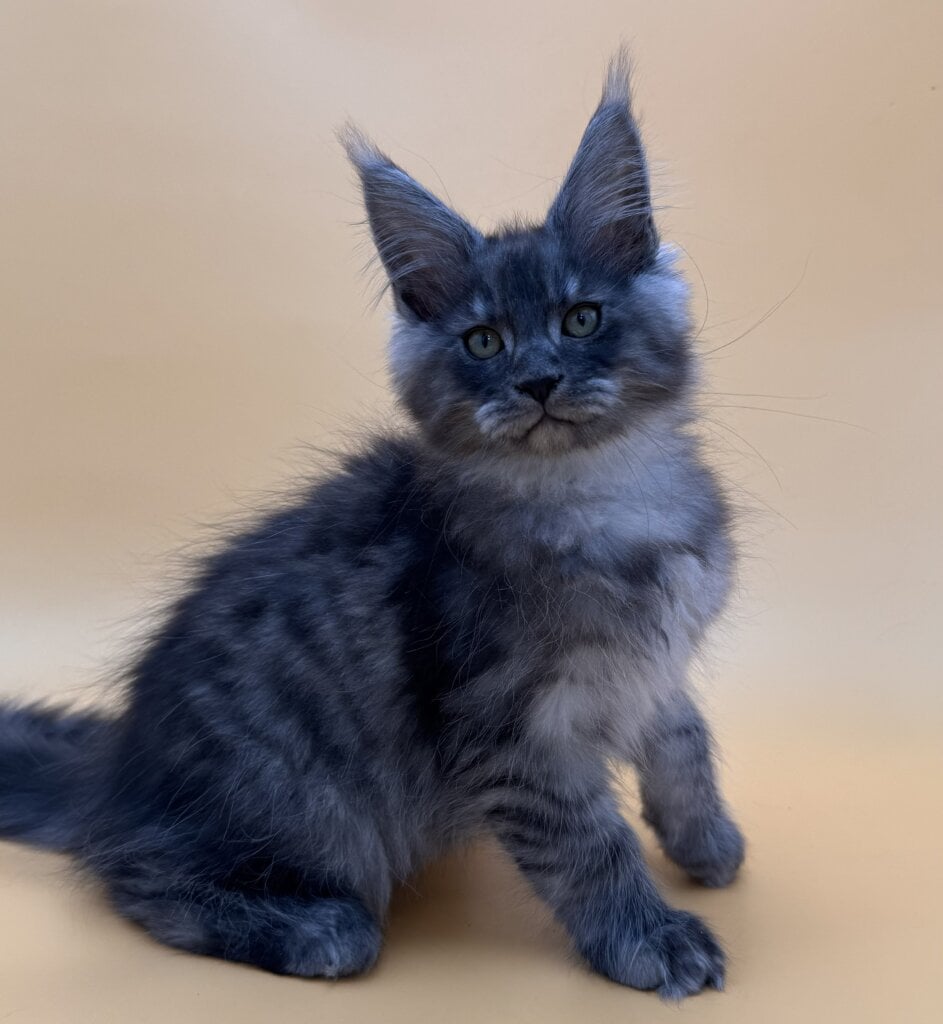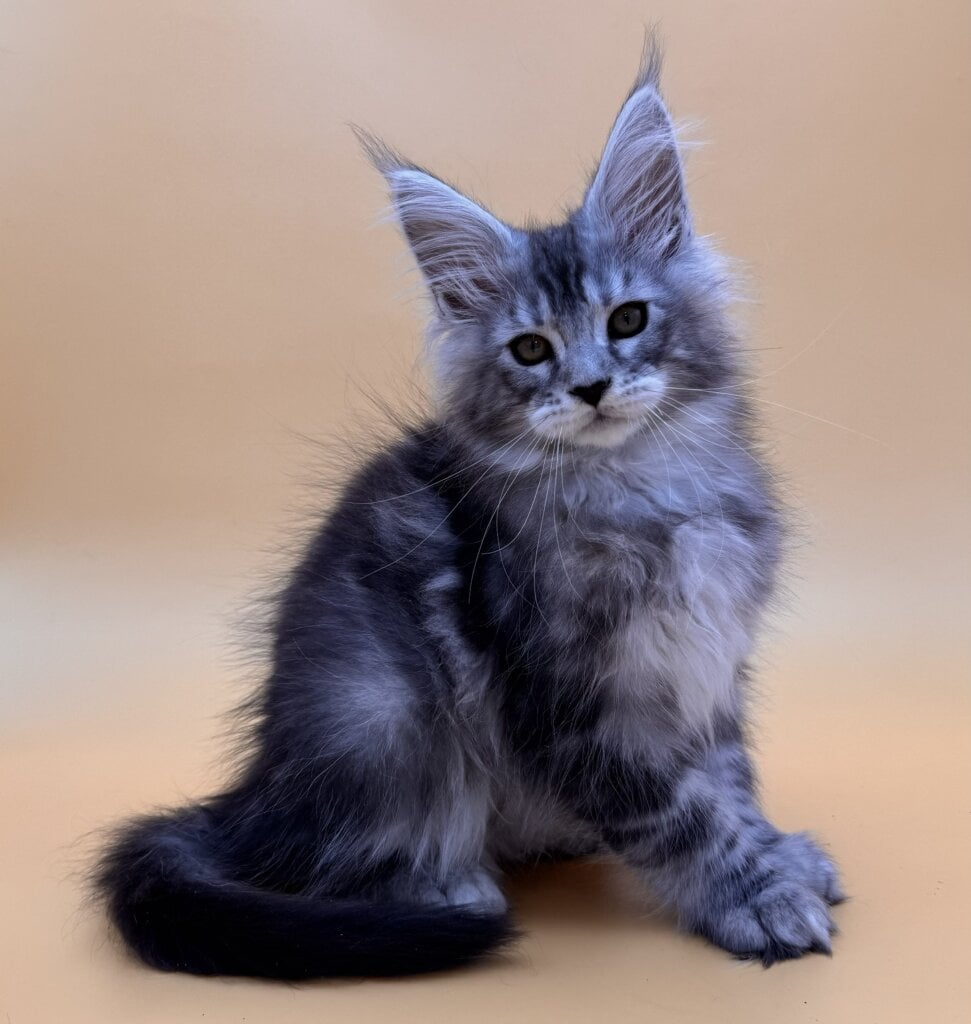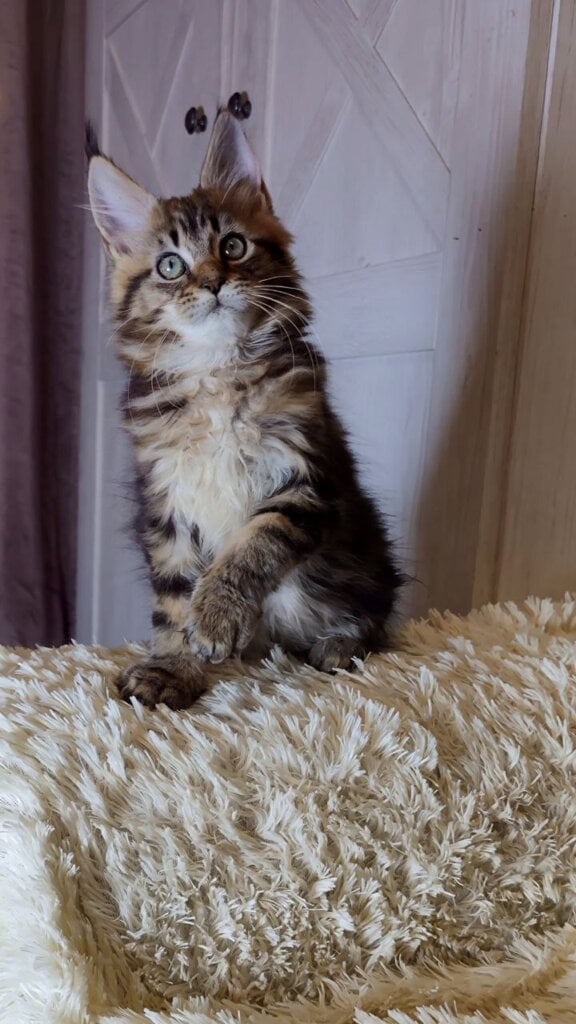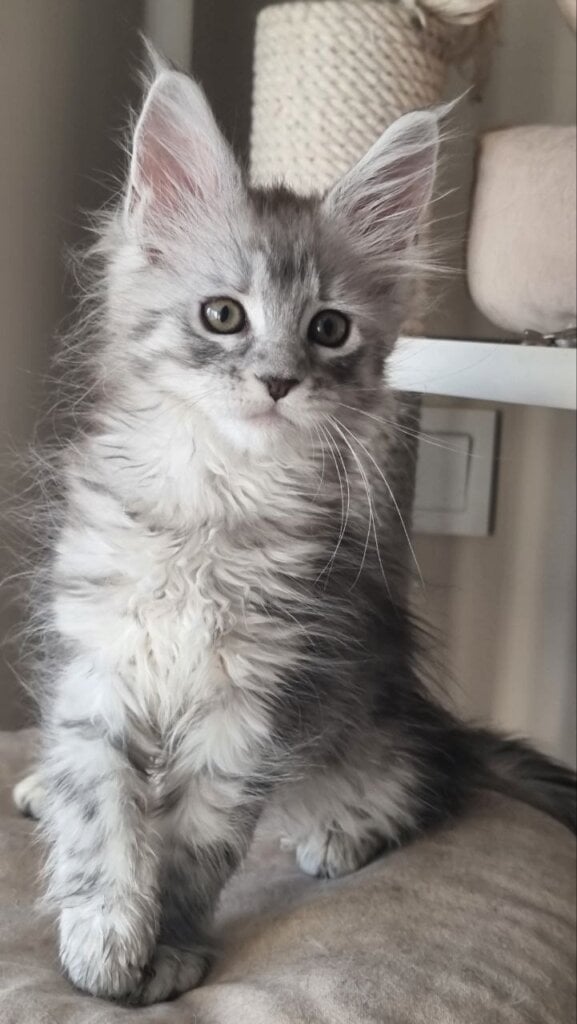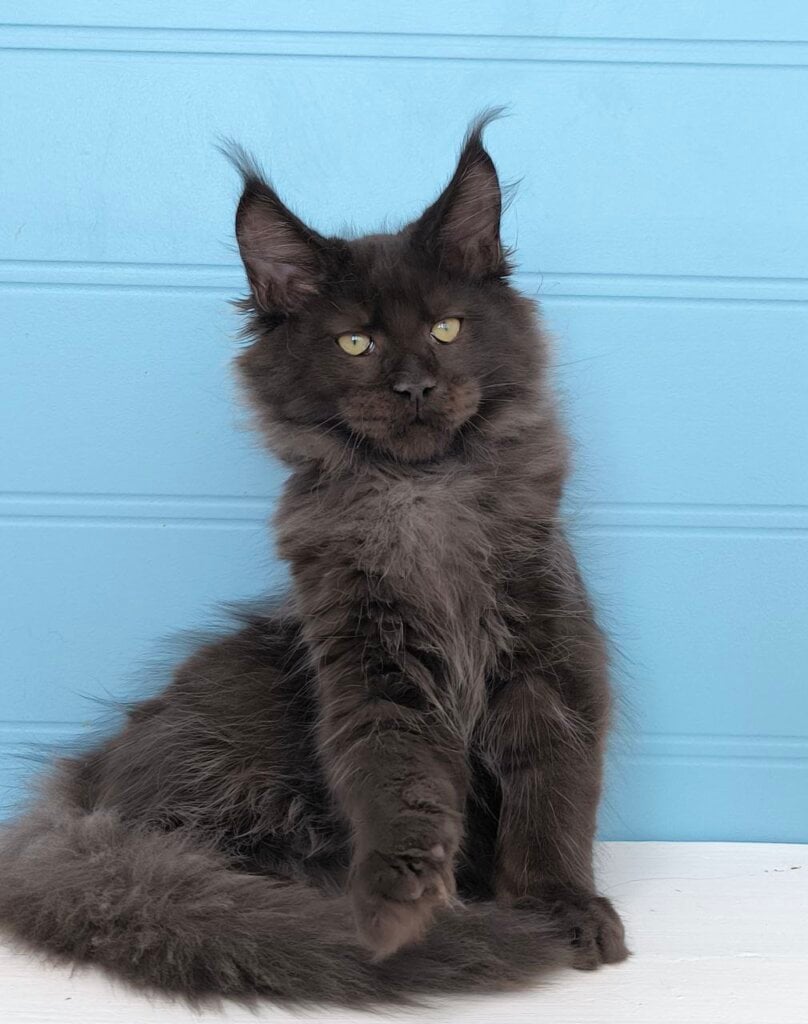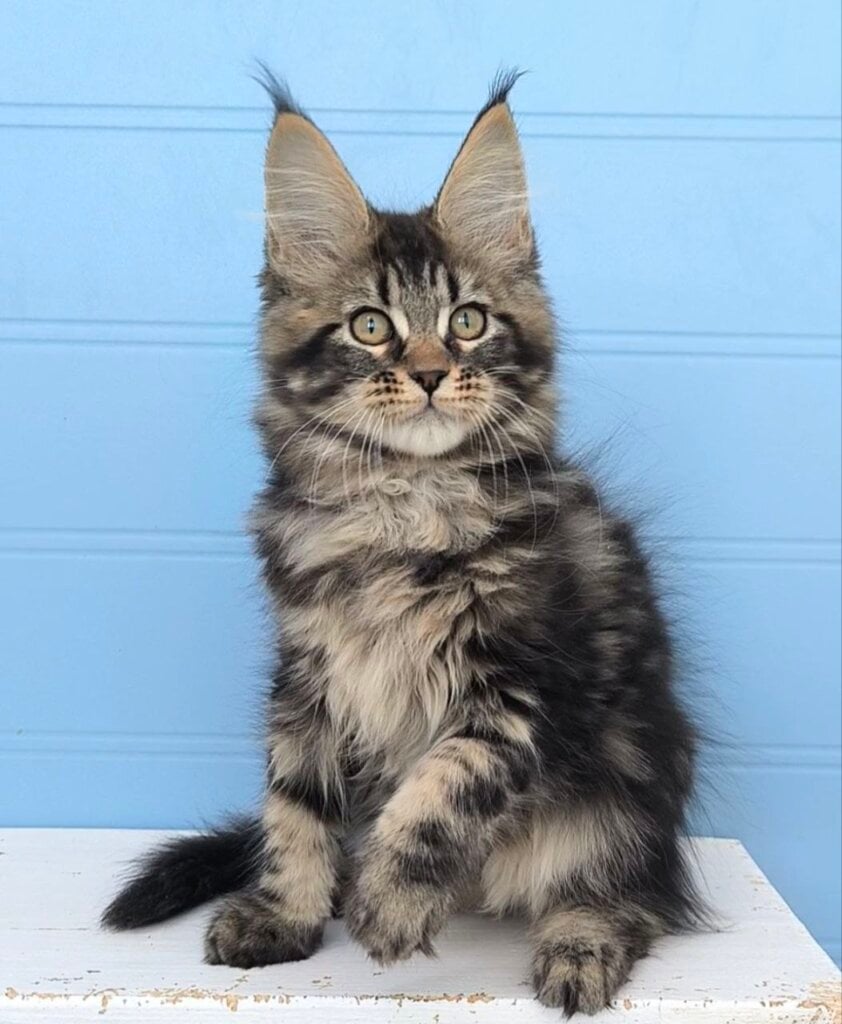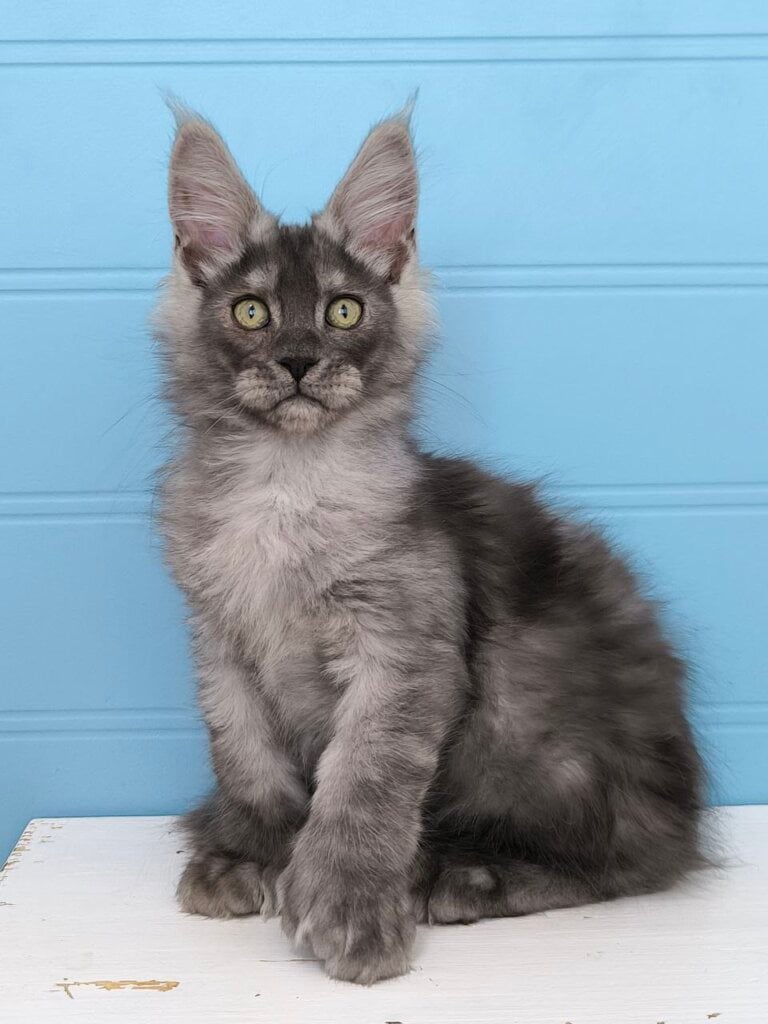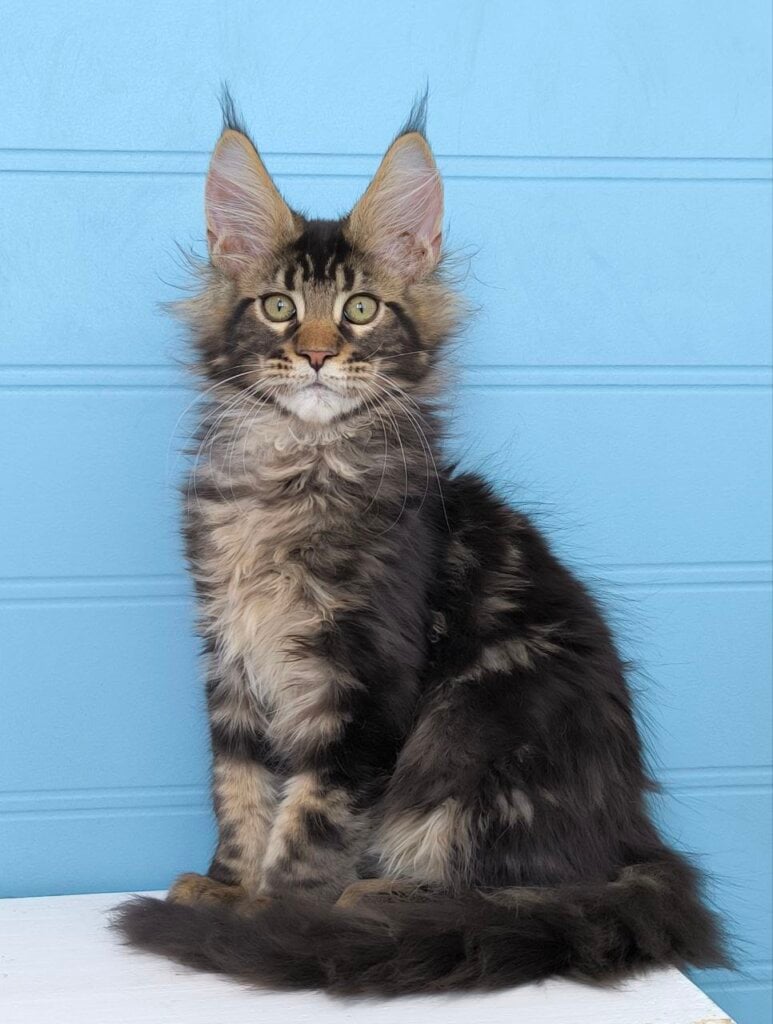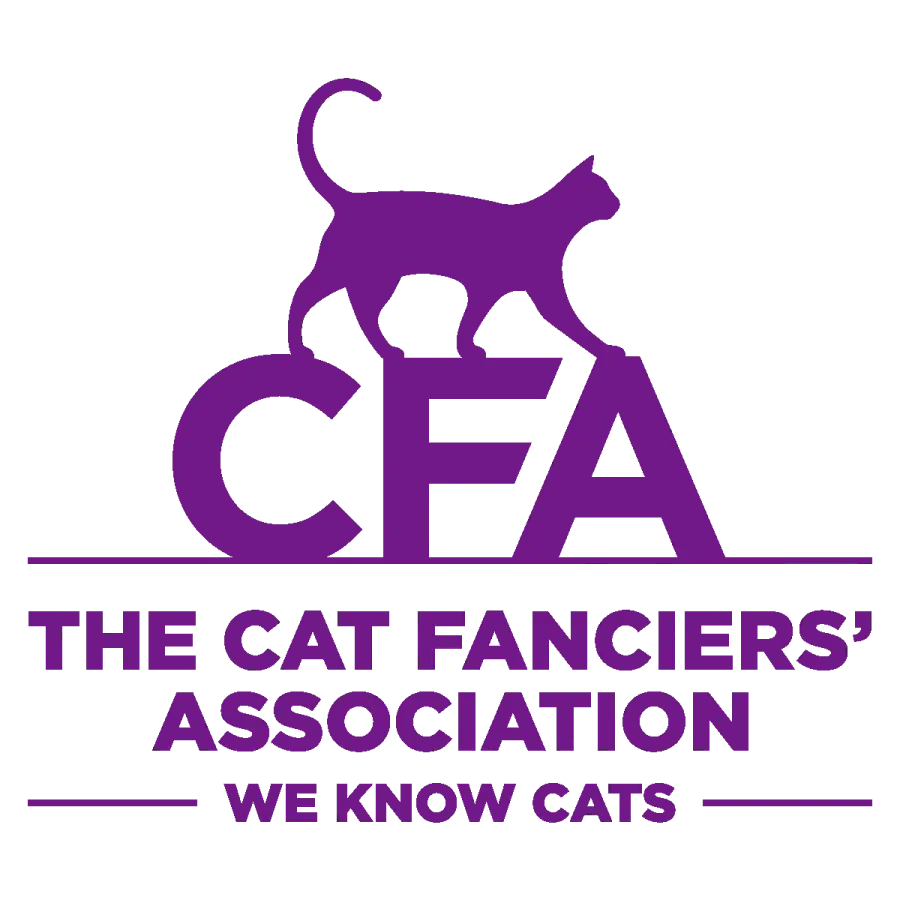What is the Average Lifespan?
1. Typical Lifespan Range
Maine Coons, known commonly as gentle giants, can expect an official lifespan of around 12.5 years. Most do live longer, often achieving 13 to 15 years, with some living over 20 years. That remarkable lifespan is even more exceptional when placed alongside other breeds.
For example, the average lifespan of Siamese and Persian cats is no longer than 12 to 15 years. Further supporting these findings are some very interesting anecdotes that Maine Coon owners have provided. Many of you tell us that your cats live well into their late teens and early twenties!
That kind of longevity comes from exceptional personal care, which illustrates the need for consistent veterinary care and a nutritious diet.
2. Indoor vs. Outdoor Lifespan
Indoor Maine Coons tend to live longer than those who live outside because they have less exposure to danger. Outdoor cats risk dangers such as traffic, other predators, and diseases.
Keeping Maine Coons indoors, as they are safer from these dangers, ensures they live longer and healthier lives. Making their indoor environment just as stimulating and engaging as their natural one – with toys, climbing trees and other interactive play – can keep them feeling good and happy.
3. Factors Influencing Longevity
A few key factors can affect the lifespans of Maine Coons. Genetics are a huge factor, with some lines more susceptible to certain health problems. Lifestyle, including their diet and exercise, contributes to their long lives as well.
Food that’s rich in high-quality ingredients with the right nutrients to keep them healthy, rather than cheap fillers and allergens, is essential. Consistent preventative care allows for the early detection of changes in their health, which is key in addressing conditions they are genetically predisposed to.
Addressing these factors can make a difference in how long your Maine Coon lives. This will ensure they can spend their golden years doing it properly – right by your side.
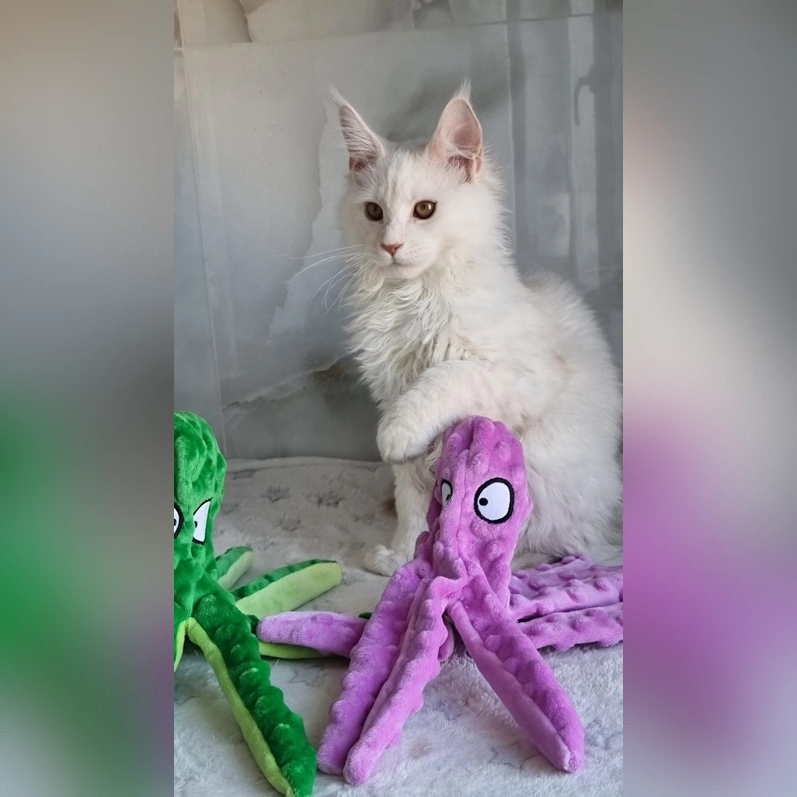
Factors Affecting Maine Coon Longevity
Genetics and Breeding
Genetics are an important factor in Maine Coon longevity. Smart breeding for good genes goes a long way toward ensuring a healthy, long life. This is where breeders come into the picture and have a major influence.
In short, responsible breeding can go a long way to protecting the lives of these big cats. Selecting a knowledgeable breeder will boost your likelihood of receiving a healthy kitten. This one choice will help ensure your new Maine Coon enjoys a long, happy life!
Other genetic conditions such as hypertrophic cardiomyopathy can impact their lifespan, making it crucial to be informed about these.
Nutrition and Diet
The right nutrition plays an important role in ensuring Maine Coons stay healthy, active and lively. They require a high animal protein diet, their primary source of energy.
Choose high-quality cat food with balanced nutrition. It’s important to keep them at a healthy weight, as obesity can decrease their life expectancy.
As cats age, they may need supplements that help maintain joint health. Keep in mind, fat may be their secondary energy source.
Healthcare and Regular Check-ups
Routine veterinary care is critical for identifying potential health problems as early as possible. Maine Coons are prone to some health issues such as hip dysplasia.
Staying on top of vaccinations and preventative care is healthy and essential. Creating a healthcare routine means they are receiving the ongoing specialized care that is imperative to their health.
Exercise and Activity Level
Active Lifestyle Maine Coons are very playful, active cats and this is seen predominantly during their first couple years. Providing them with regular playtime will help to keep them healthy and energetic, which will lead to a much longer life.
Things such as climbing and chasing feather wands encourage their innate predatory behavior. Providing regular playtime with interactive toys helps them stay active and provides important mental stimulation.
Safe and Stimulating Environment
Creating a safe and stimulating environment is crucial for Maine Coons.
- Secure windows and balconies
- Provide scratching posts and climbing structures
- Ensure access to mentally stimulating toys
- Create cozy resting areas
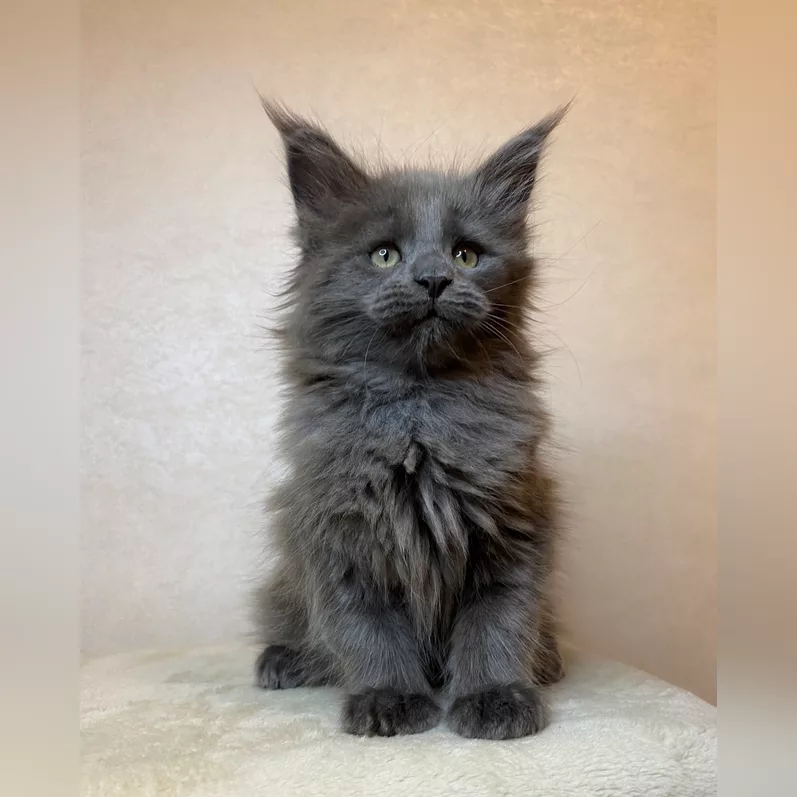
Caring for Your Maine Coon
Caring for a Maine Coon is a balance of proper nutrition, environmental enrichment, grooming, and routine medical care. Each factor contributes to them living up to their potential lifespan, which can be as long as 20 years.
Feeding Guidelines
Due to their large size, Maine Coons require a highly nutritious diet. Portion control is especially important with this breed as they can balloon to nearly 30 pounds.
Food intake may need to be modified as they reach different stages of life, with their appetites generally balancing out by 4 to 5 years of age. Choosing premium dry and wet food and working with your veterinarian can help you tailor a diet to their specific needs.
Creating an Ideal Environment
Creating an ideal environment for your Maine Coon involves several key elements:
- Ample space for movement and exploration
- Safe hiding spots for stress relief
- Access to natural light and fresh air
- Interactive toys to keep them engaged
Routine Grooming Practices
Given Maine Coons’ long fur, you have to brush them regularly. Brushing Maine Coons once a week typically suffices, though daily grooming during spring and summer will keep any potential matting at bay.
Use the right tools such as de-shedding combs and slicker brushes, and set up a grooming routine to maintain their coat’s health and appearance.
Ensuring Proper Healthcare
Routine health checkups are essential. Regular dental care is essential in Maine Coons, as is keeping an eye out for common health concerns.
Maine Coons are genetically predisposed to select conditions, so staying alert for health and behavioral changes is key. Preventative care through yearly or bi-yearly check-ups promotes both long-term health and peace of mind.
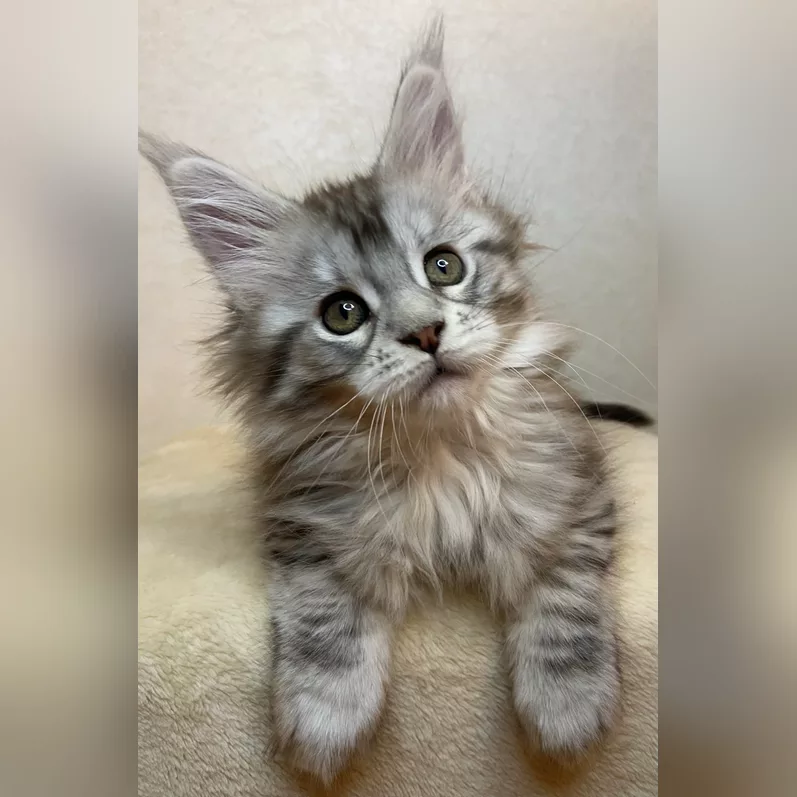
Understanding Life Stages of Maine Coons
By learning more about Maine Coons and their life stages, you can give your Maine Coon the happiest, healthiest life, no matter what age they are. With their amazing size and gentle disposition, these impressive felines do not disappoint. On average, Maine Coons live for around 12.5 years, with a lifespan of 10 to 15 years considered normal.
As they move from one life stage to another, their requirements adapt too. With that shift comes a need for specialized care to help them live healthy, happy lives.
Kitten Stage (0 – 6 Months)
During the first few months, Maine Coon kittens are attention-seeking little things. Notably, they require a lot of socialization and playtime to mature as they should. All of these activities are important for their development, allowing them to grow into well-adjusted adults.
To support proper growing development, feed your Maine Coons a balanced diet that’s high in nutrients. They typically triple their birth weight within their first month! Regular veterinarian visits for vaccinations and general health are important during this age span.
Adolescent Phase (6 – 18 Months)
Once your Maine Coons reach adolescence, they can get a little crazier and more mischievous. Ongoing socialization and training are important to curb their curious streak. They need more physical exercise, including interactive play, to redirect their energy in a productive way.
Keeping a careful watch on their health during this transitional period allows you to identify early signs of potential health concerns.
Junior Years (1.5 – 4 Years)
That said, Maine Coons tend to become more mature in personality after the age of two. Throughout their junior years they are still on their way to bigger size and maturity. Good nutrition and exercise are essential to keep them growing healthy.
Regular vet appointments are essential for monitoring their health and development, and stimulating activities are key to keeping their minds active.
Adult Period (4 – 10 Years)
In their adult years, Maine Coons require regular veterinary care to keep them healthy. A healthy, balanced diet along with routine veterinary care will help Maine Coons maintain a healthy weight and avoid other health problems.
Social interaction and play continue to be important to keep them active and happy.
Senior Stage (10+ Years)
Senior Maine Coons need special care, as their needs tend to change with age. If common health issues start to develop, they’ll need to see the vet more often. Dietary changes, including adding in senior cat food, help them nourish their aging bodies.
The key here is to pay special attention to their health during this stage.
Identifying Your Maine Coon’s Age
Whether you have a kitten or an adult, knowing your Maine Coon’s age is important to helping you meet their needs. These gentle giants mature slowly, reaching adulthood between three to five years old.
Keep in mind that during the first year, you’ll see some awesome growth! Kittens typically double their birth weight by the end of the first week and continue to gain weight quickly. By five, Maine Coons can tip the scales at as much as 30 pounds.
Examining Teeth for Age Clues
Dental health provides age-telling clues for your Maine Coon. In general, younger cats will have whiter teeth and older cats may have some wear and tartar buildup.
Routine dental care is key to preserving your pet’s overall health. Look for teeth breaking down or gaps in teeth to determine gum disease and potential decay to help calculate age.
Observing Coat Changes
Your Maine Coon’s coat can be a giveaway to their age. The older they get, the more you’ll notice their coat change in texture and density.
Their formerly soft and full fur may become sparser. Daily brushing will keep their coat healthy and free of mats while keeping their skin healthy as well.
Assessing Muscle Tone and Activity
Muscle tone is another good age indicator. Young Maine Coons tend to have very toned muscles and a lot of energy, with many still being playful even after two years of age.
As they get older, they could become less active. Push for regular exercise to keep joints healthy and watch for signs of declining mobility.
Evaluating Eye Condition
Eye health can be a big indicator of age, too. Scan for typical age-related concerns such as cloudiness or discharge.
Regular veterinary eye examinations are essential to detect issues at their onset. If you see any changes, don’t hesitate to consult a veterinarian.
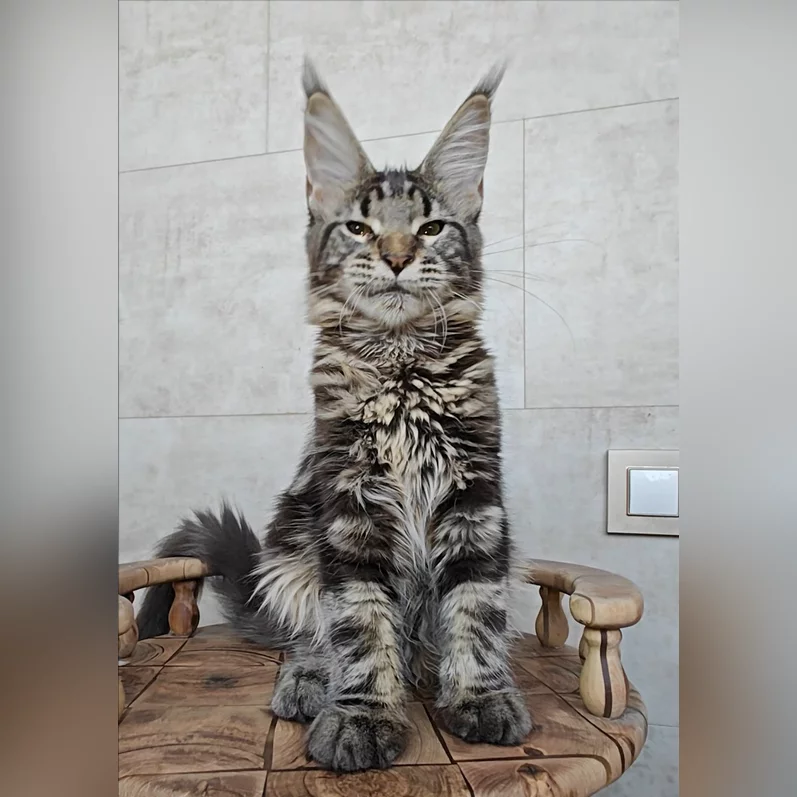
Tips for Extending Lifespan
Balanced Nutrition Strategies
A proper diet is key to maximizing the lifespan of Maine Coons. These majestic cats need quality protein sources to meet their obligate carnivore needs. Look for quality foods with plenty of animal protein and no fillers or artificial ingredients that may negatively impact their health.
Working with a veterinarian can help ensure that they are fed the right diet, which can help avoid obesity, one of the key risk factors. Good nutrition is an essential building block for their long-term wellbeing and longevity.
Importance of Play and Exercise
Daily play and exercise routine is essential for Maine Coons. Whether gardening, playing sports, hiking or traveling, engaging in daily activities helps them stay physically active and mentally sharp. Interactive toys, like feather wands and balls, help get your cat moving while having fun.
Just as importantly, they add years to their life and yours by deepening the bond you two share. Setting aside time every day for play sessions will help keep your pet’s mind and body active, ensuring they live a long and healthy life.
Regular Veterinary Visits
Routine veterinary care is important for Maine Coons. Annual check-ups for adults and biannual visits for seniors allow preventive medicine to identify and address potential health problems before they become serious. Access to preventive care, such as routine checkups, vaccinations, and heart screenings, protects kids from conditions like HCM.
Setting up a regular vet schedule is what will make sure your Maine Coon is living its best life for its whole life.
Maintaining a Safe Living Space
- Remove toxic plants and substances.
- Secure electrical cords and small objects.
- Provide safe hiding and resting spaces.
- Ensure windows and balconies are secure.
